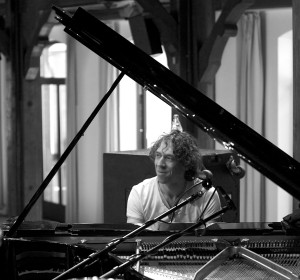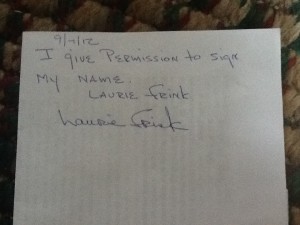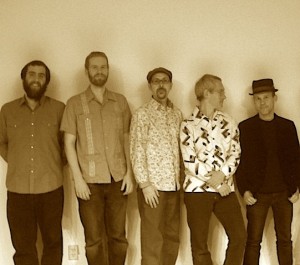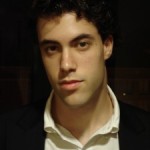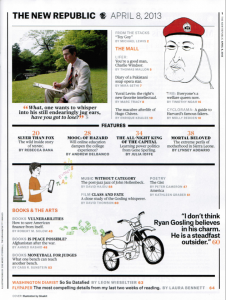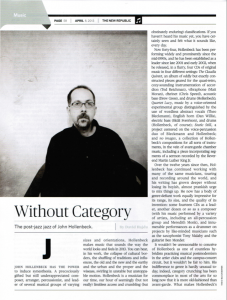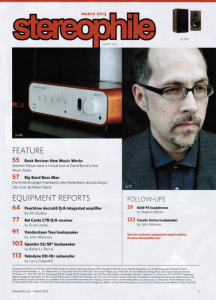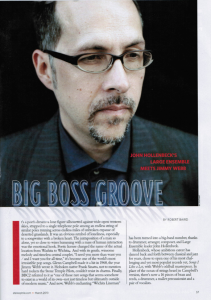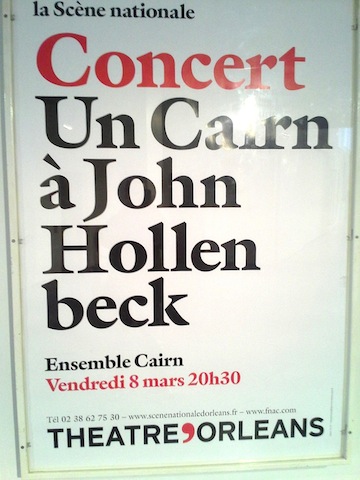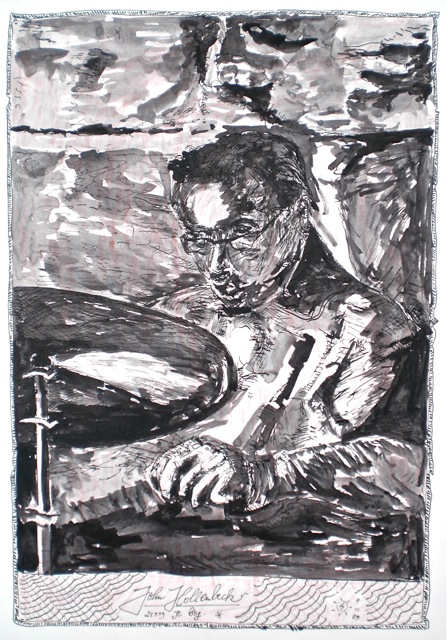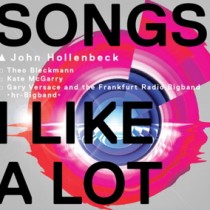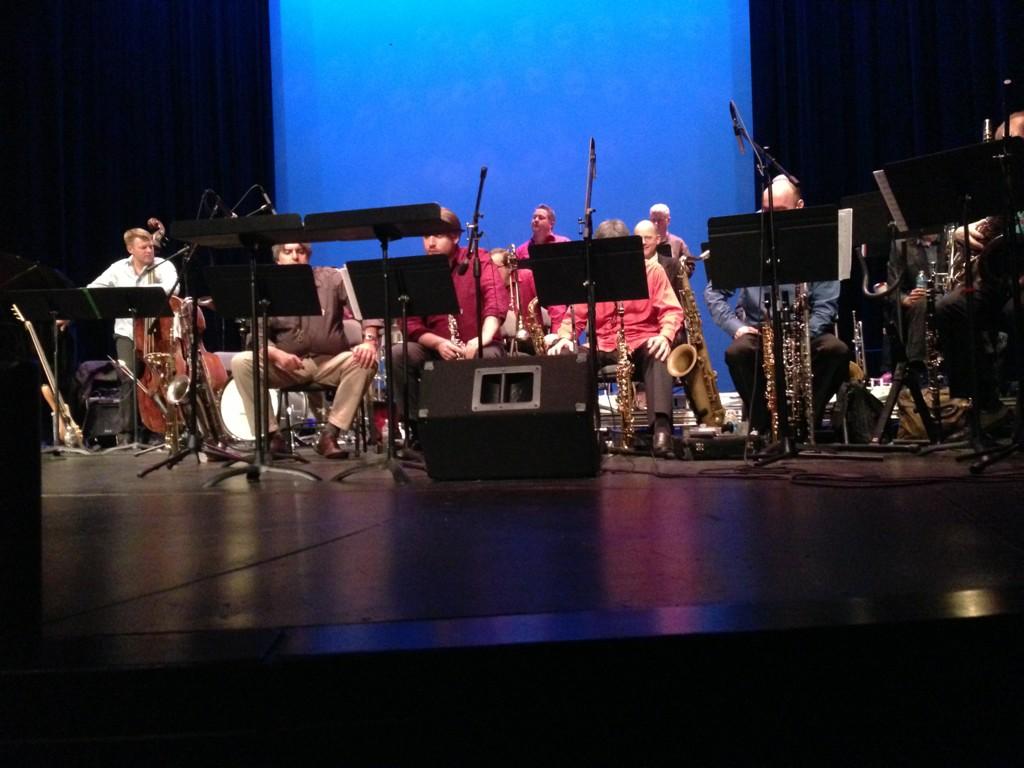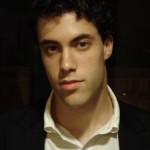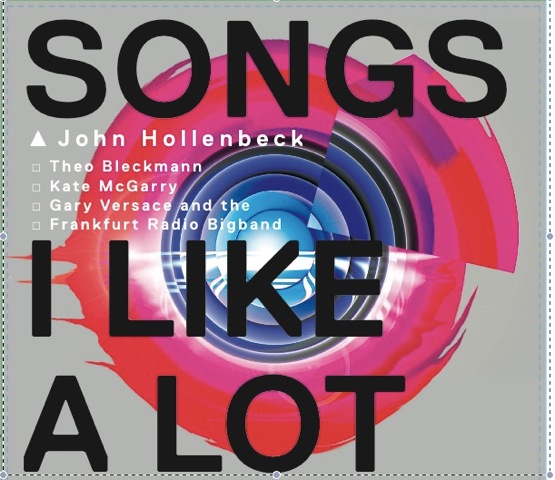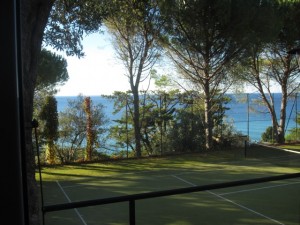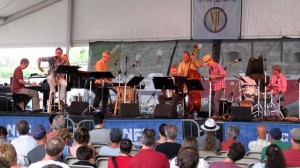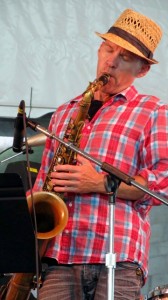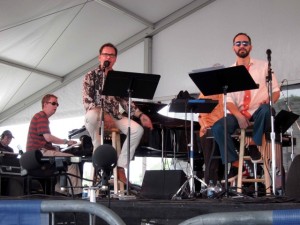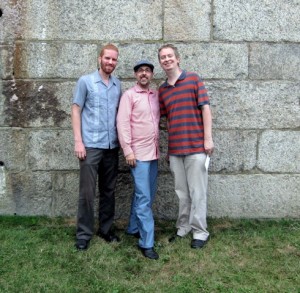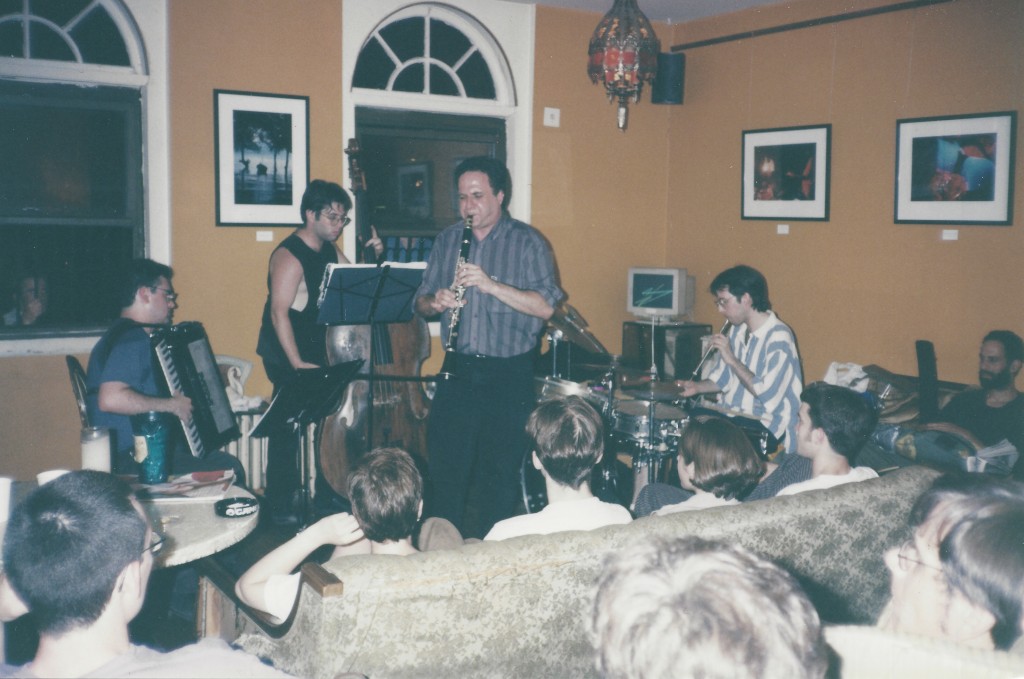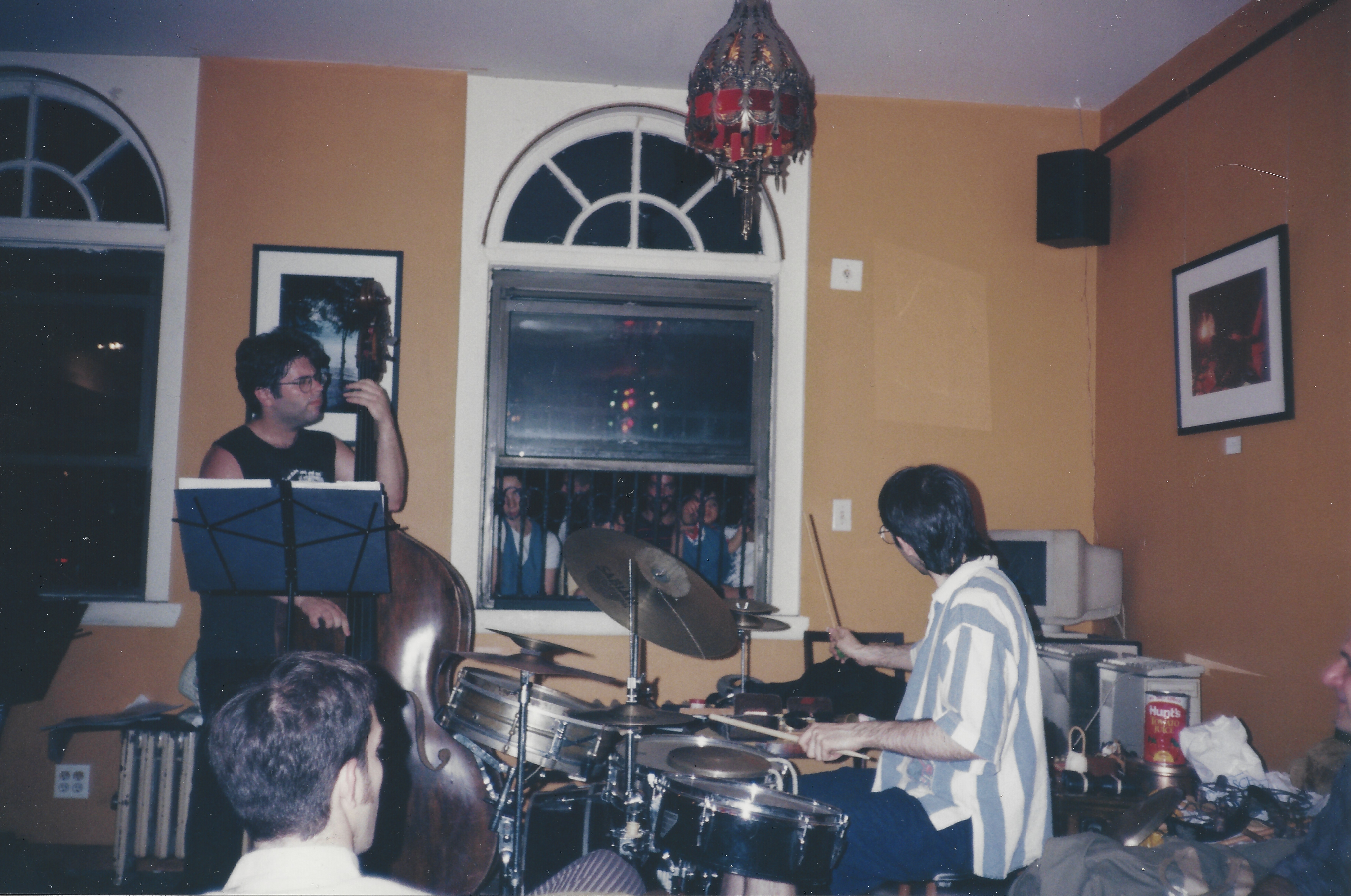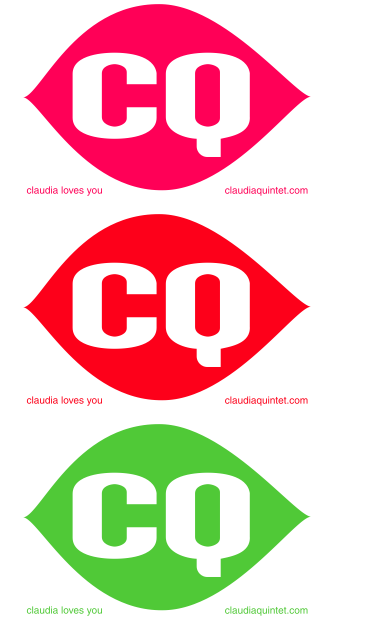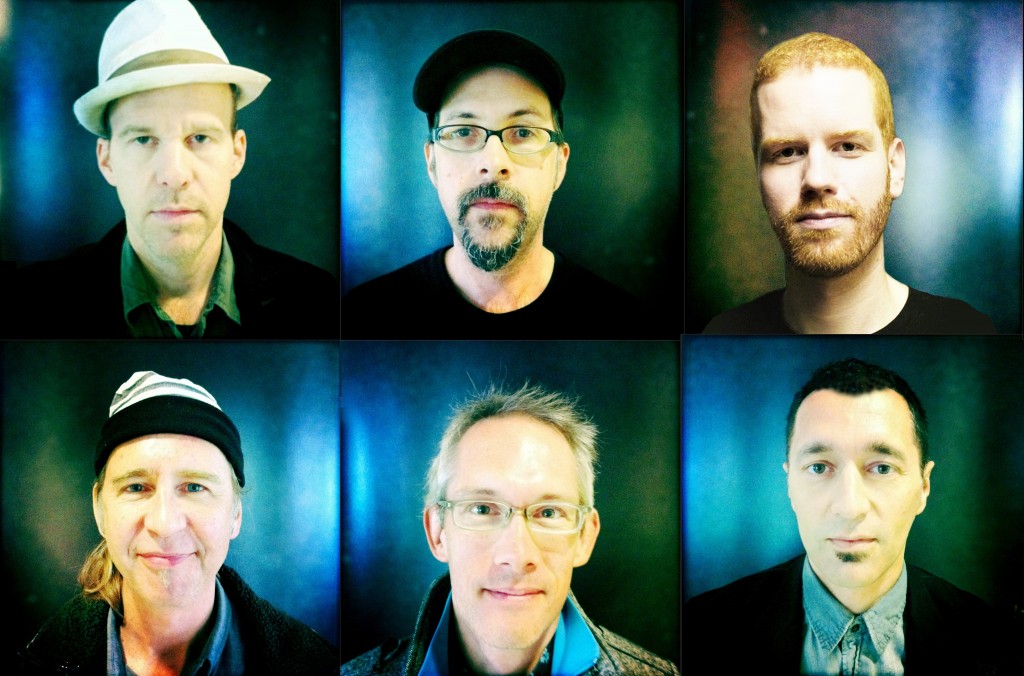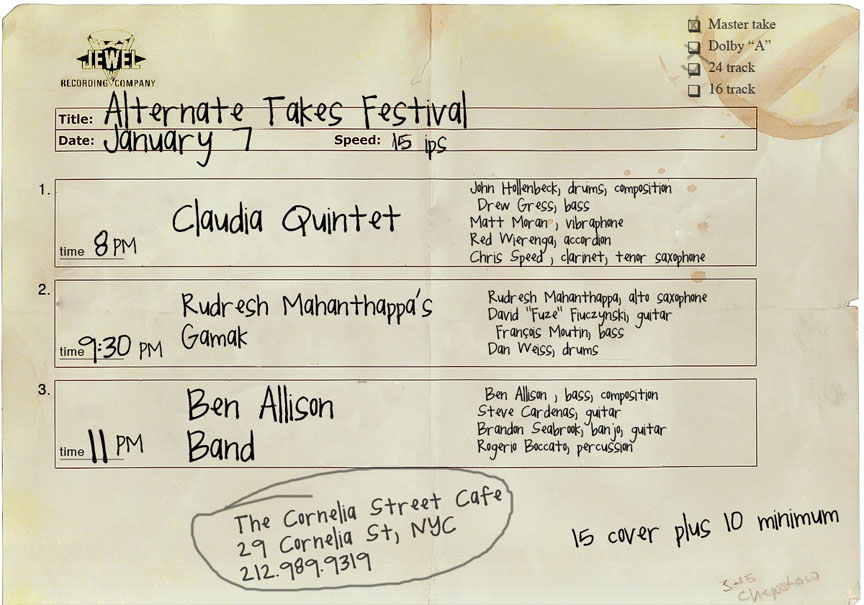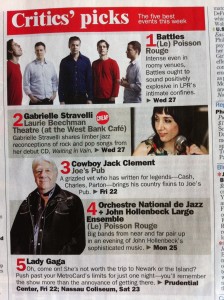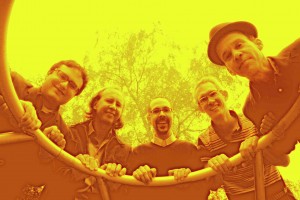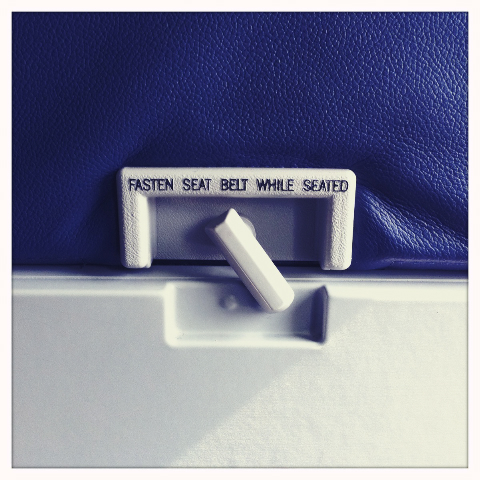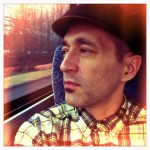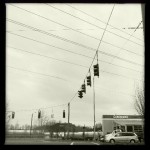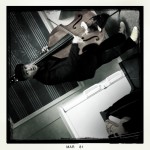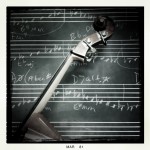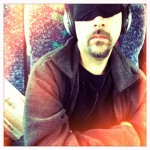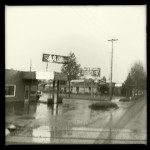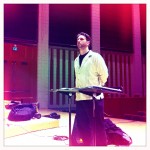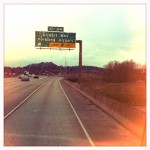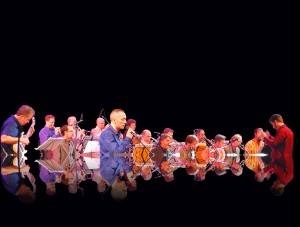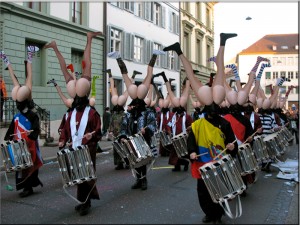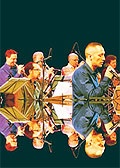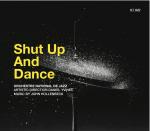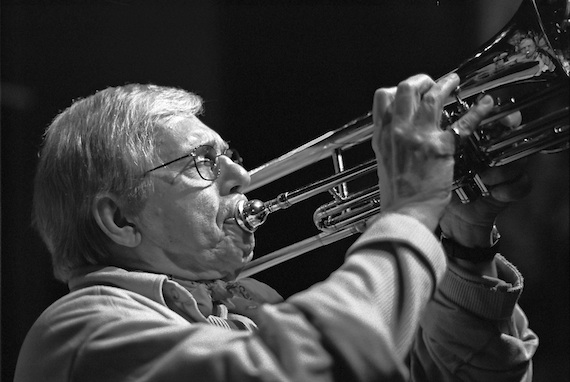 December 17th 6:22am
December 17th 6:22am
As I sit down to write something about how much Bob Brookmeyer has touched my life and to share my memories of him, I have to put on some of his music. So much to choose from…perhaps Dreams (oh those chords!), but I choose Holiday: the 2007 Bob Brookmeyer piano trio record. I start with Jan Likes – you will notice many references to Jan in his titles. (Jan is the angel that Bob was lucky enough to find and be married to for the last 24 years – his beautiful cornerstone.) Bob on piano was always a special treat. If I had the knack that Bob had to say exactly what I think, I could describe this as what Keith Jarrett would sound like if he had partied harder. (I’m a slow writer so now I’m already on to the next track, Stupid Song-awesome title!)
I first met Bob at the SUNY Binghamton Summer Jazz Workshop when I was 14. I had an emergency appendectomy just a few days before, but with clearance from doctors and my parents, I was at least able to watch the workshops and some of the nightly concerts that Bob’s sextet gave. What a great group this was: Adam Nussbaum, Michael Moore, Jim McNeely, Dick Oatts, and Joe Lovano – I still have my bootleg cassettes. This is the first time I was honored to (I’m on to Child Song now) hear the “Brookmeyer sound”. That warm, huge, enveloping sound – it is identifiable after just a few seconds. And those lines of his, sometimes officially “outside”, but Bob worked hard at believing in them, so they actually sounded “inside”. Most of these tunes are on Through a Looking Glass – you may only be able to find this on vinyl at this point, but it is worth the hunt. I love these tunes. Mel especially sounds inspired!
I remember hearing Hello and Goodbye for the first time, played by the SUNY workshop participants during the day – one of those great Bob pieces that goes through many different moods but maintains an organic thread. At that time, it was being decided for me by some unknown force that I was going to be a professional musician. And there was Bob: showing me what music was about, what sound was about, what swing, creativity, and forward motion were about. Forward motion! Bob never stopped trying to move forward musically-speaking. Sometimes when he would meet up with fellow musicians his own age, they would show their confusion with this aspect of Bob. As in Al Porcino’s famous comment after hearing some of Bob’s modern big band music: “Bobby! What happened?” It was this constant striving to move outside the standard jazz box that was truly inspiring.
The next time I saw Bob was at the Eastman School of Music, I was 18. We played the music from the record, Dreams. I actually played percussion on that concert and brought out a washtub to add its special sound to his music – instead of thinking a washtub was too strange an instrument like you might expect from an older composer, Bob was totally into it. I also remember him explaining what the groove on one of his tunes should be. We were expecting to hear him say the usual “straight eighth” or “triplet feel” – instead he sang the subdivisions “ZOO-BA DO-BA, ZOO-BA DO-BA” and said “Like that”! Needless to say, that groove explanation was a topic of conversation and laughter for years after that!
(I’m on to It Might as Well be Spring. Bob playing or arranging standards is always special. He obviously knew them really well and in many cases had arranged them earlier in his years, so when he took a standard and put his genius on it later on in his career, it is simply awe-inspiring.)
Bob gave some very thoughtful workshops at Eastman and his bubbling creativity was contagious. At some point, he sat at the piano and played simple intervals and encouraged us to listen closely, intently, in order to truly figure out what the intervals feel like and what images come to mind when hearing them. This experience can greatly help a composer looking for a specific feeling or emotional quality. He asked us what we dreamed about doing and he told us what he dreamed about doing. I remember he wanted to do a theater piece with jazz musicians where he would engage the audience from the moment they walked into the theater lobby…and it would seem magical and spontaneous. At that time, he was still thinking about how fun it could be to make the listener uncomfortable, to engage them in a way that would jolt them out of the daily grind.
My next encounter was four years later, as an applicant to his World School of Jazz in Rotterdam. The plan for this school was to run it as a long-term workshop with short-term guest teachers. I was accepted, but the school never got off the ground – this was a big disappointment for Bob and hugely missed opportunity for the world jazz community. Two good things for me that came out of this disappointment was that Bob and Jan moved back to the US, and Bob heard me play the drums for the first time on my audition tape. (I’m switching now to New Love from Spirit Music. I love the way Nils van Haften sounds on this…such a warm, rich sound.)
A year or two later, I applied for and got what ended up being the last round of NEA study grants to study composition with Bob. I only took about four or five lessons, but those were the most important lessons of my life. The exercises we worked on and the basic idea of “cellular” composition (basing a piece on one idea) are the cornerstones of my technique. I’m still working on some of the pieces I started in this creative period that were sparked by Bob’s assignments. I did most of the assignments incorrectly, but usually something good came from my mistakes, so we both found the value in what we were doing. I drove up to New Hampshire for the lessons – Bob and Jan graciously invited me into their home and Jan cooked up some great food, although Bob was really only interested in dessert!
(Now I’m listening to Ding Dong Ding – Mel Lewis and Bob Brookmeyer! I have to stop writing and just listen to that one. That is the first time that song made me cry, that’s for sure.)
The song on my audition tape that got Bob interested in my drumming was a hip hoppy groove that I played on Freedom Jazz Dance. There was something in this groove that Bob liked, it was swinging but in a “new” way. He later told me that this led him to ask me to be the drummer in what became his New Art Orchestra (NAO) in 1996. NAO evolved out of The Schleswig-Holstein Musik Festival Big Band, which was initially run through the auspices of this northern Germany Festival. We performed as the S-H MF Big Band at the Festival and in subsequent years, we’d get on a bus afterwards and head out to perform in other cities as the New Art Orchestra. Bob used to joke that once we drove far enough out of town, it was time to change the sign on the bus to the “New Art Orchestra”. (I’m now on to Silver Lining from Spirit Music. Bob takes some great breaks in this one!)
From the beginning, Bob taught NAO how to be a band. He had this educational talent that is unique, mainly due to his exhaustive experience and dedication. His musical life was a personal trip through jazz history. We worked persistently on sound, phrasing, and ensemble-playing. He told me, as the drummer, what he loved about Mel and Elvin too, but mostly Mel, the drummer/magician who had the unique gift to make a band sound great with grace and coolness. But he also said: Do not even bother trying to copy, because no matter how close you get, you will never be Mel. But knowing what Mel did that Bob loved was extremely helpful. He told me to play with perceived abandon while never forgetting about the groove or setting up the band, but making it all sound like a happy coincidence. He always wanted a lot of activity on the snare drum so that the band could always feel the beat. Cracking the code on how to play drums in a big band is what I imagine learning to drive an 18-wheeler is like. Bob coached me for years until I got to the point where I could easily conjure his advice in my head and integrate it as I was playing.
The New Art Orchestra meant a lot not only to the players, but also to Bob – to have a band of young, enthusiastic people who loved him and listened intently to every word he said was a gift that Bob sincerely appreciated and he told us this often. We learned so much about music and how to make exceptional music with a large group of people. At present, about half of the band are permanent members of radio big bands. These are some of the best bands in the world, but when we come back together as the NAO, we realize this band has a unique sound, an integrated, warm sound that is truly special. This is Bob’s gift to us.
Continued 12:52am December 19th…Happy Birthday Bob!
(No music for the moment, but I’ve got Nasty Dance running inside my head.)
The actual chronology is fuzzy for me but the NAO has had many interesting moments:
Playing the Celebration Suite with Gerry Mulligan and then Scott Robinson (he sounds so great on the recording!) and later on, Michael Brecker! One of my most humbling moments was listening to Michael sit down at the drums at the soundcheck. And just a few years ago, we performed it with Joe Lovano at the North Sea Jazz Festival! Playing with Clark Terry and seeing Clark and Bob clown it up.
One of the most bizarre gigs of my life: The NAO was hired to play for Helmut Kohl’s birthday party around 2000. At the last minute, Bob had to cancel, but the band was already committed to the gig and we, as a band, needed the money. So, we changed our program to Glenn Miller and some other “lite” pieces. It took place in a hockey rink, I think near Karlsruhe. We alternated sets with an “organist” (one of those big white organs with its only “rhythm section” available at the push of a button.) Needless to say his sets started getting longer and ours shorter. Some of the trumpet players got their mutes signed by former Chancellor Kohl. A surreal gig that Bob was lucky to miss!
Over the years, NAO recorded New Works, Waltzing with Zoe, Get Well Soon, Spirit Music, and Standards plus Madly Loving You. Most of these were recorded at the great Studio Bauer with the equally great engineer, Carlos Albrecht, a man Bob really trusted to help capture our sound.
The last record with Fay Claasen, recorded this past March, was a touching experience where the band collectively reaffirmed what a special band we have, what a special sound Bob gave us. It is an exceptional feeling to be part of a band where each and every player is wholeheartedly dedicated to Bob and is there for no other reason than to play their hearts out for him and his music.
And some incredibly important personal moments: At the Schleswig-Holstein festival in 1995 I think, the NAO played a part of a 12-hour classical meets jazz concert. Another set featured parts of the NAO with orchestra. Vibist Matt Moran was called from Boston to play the Milt Jackson part in a piece that Gunther Schuller wrote for the Modern Jazz Quartet with orchestra. Matt and I also ended playing a short free improvised duo set. This was my introduction to Matt, one of my favorite musicians, one of my chief musical buddies and stalwart member of The Claudia Quintet.
Also, that day, a high school friend of his came to see him (she was an exchange student living in Heidelberg). Although she did not notice me, I took an instant attraction to her and did not forget her. She saw NAO again a few years later at a concert near Heidelberg, and not too soon after that we became a long-distance couple. Kate is now my adored wife of 5 years!
Now I’m listening to the NPR-Jazz Profiles on Bob. Most of this stuff I know, but it is just great to hear Bob’s voice, and his sound.
Aside from the NAO gigs, various musicians in the band started asking me to play on their own projects. This led to many tours in Germany and ten years later led to my getting a professorship in Berlin, at Jazz Institute Berlin.
The 70th birthday recording that Ed Partyka organized was yet another moving experience. A band that was not officially the NAO, but quite close, recorded pieces written by friends of Bob’s. I always liked Bob’s deep, low voice, so I created a composition with a musical scenario where “Father Bob” marches into the hall (Processional) and then gives us some fatherly advice: the poem, Desiderata (by Max Ehrmann). I asked Bob to recite the poem and he reluctantly agreed. Eventually he warmed up to the piece and even asked for a study score. In the end, his recitation was exactly what I was hoping for. It is too early for me to listen to this piece now, too painful, but I do hear one of the last lines resonating in his voice clearly in my head…”Strive to be happy.” You can listen to it here.
Around his 74th year, I recorded a small group CD with him and Kenny Wheeler. Thanks to John Snyder for capturing that on film too! Now I need to listen to some of this, it has been a while. The title track, Island, is one of the great tunes Bob wrote for the recording session. Just watching Bob and Kenny sweetly interact with each other personally and musically was inspiring to see. I’m just going to let this record play out so I can give it my full attention. Kenny and Bob’s approaches are so different, but they obviously really admired each other. I remember Bob laughing about Kenny asking him for composition lessons. Check out the DVD!
A few years ago, Bob and I did a couple of quartet gigs with Brad Shepik and Drew Gress in NYC and Cheltenham, UK. It was so deep to experience Bob in that intimate atmosphere and he even played some piano! He was struggling physically (I think it was his knees) but still played great. I asked if we could play a tune of his that he played with sextet that I heard in Binghamton in 1982 and he graciously agreed (it was not his habit to play “old” tunes). I was always hoping that Bob would feel good enough again to do more quartet playing.
For Bob’s 80th birthday, Dave Rivello organized a concert at the Eastman School. I wrote a short musical “happy birthday” with a human greeting card and flowers. (Thanks fellow Eastmanites for making it happen!). Later I expanded this 2-minute piece into Bob Walk for the Orchestre National de Jazz (including a “boomwhacker” introduction with the members of the ONJ slowly reciting the spelling of Bob’s name).
Bob has significantly and positively influenced my life on so many different levels and for that I am eternally grateful. Because of Bob, I: found a band of my own (The Claudia Quintet), found a soulmate (Kate), found my dream teaching gig, am in one of the best big bands EVER (with some of the nicest guys you will ever meet!), and found my voice as a composer and as a mature human being. The thing is, my experience is probably not that unique. I know Bob has touched many others’ lives in the same way, which is the true testament to how exceptional a man and musician he was.
Once a few years ago, Bob left me a phone message, telling me that he loved me. He was the first man to tell me that. That still means a lot to me, not only that he felt it, but that he was courageous enough to say it. This act helped me so much as person, to try to open up and not be afraid to express the strongest of feelings.
Bob, I love you too. In moments like this it is soothing to imagine that you are “up there” jamming with Mel, Gerry, Jimmy and all the others. I now have to stop writing and get back to listening to the hours and hours of great music that you left us! I’m going to start with your arrangement of Willow Weep For Me, that one always gives me chills.
Your beloved friend, fan and eternal student,
John Hollenbeck
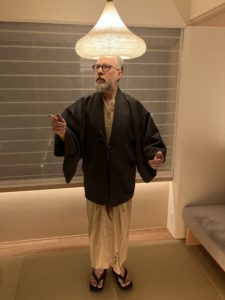

 MENU
MENU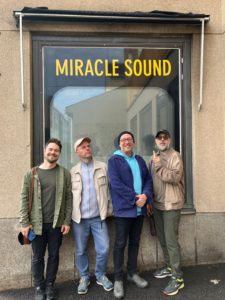

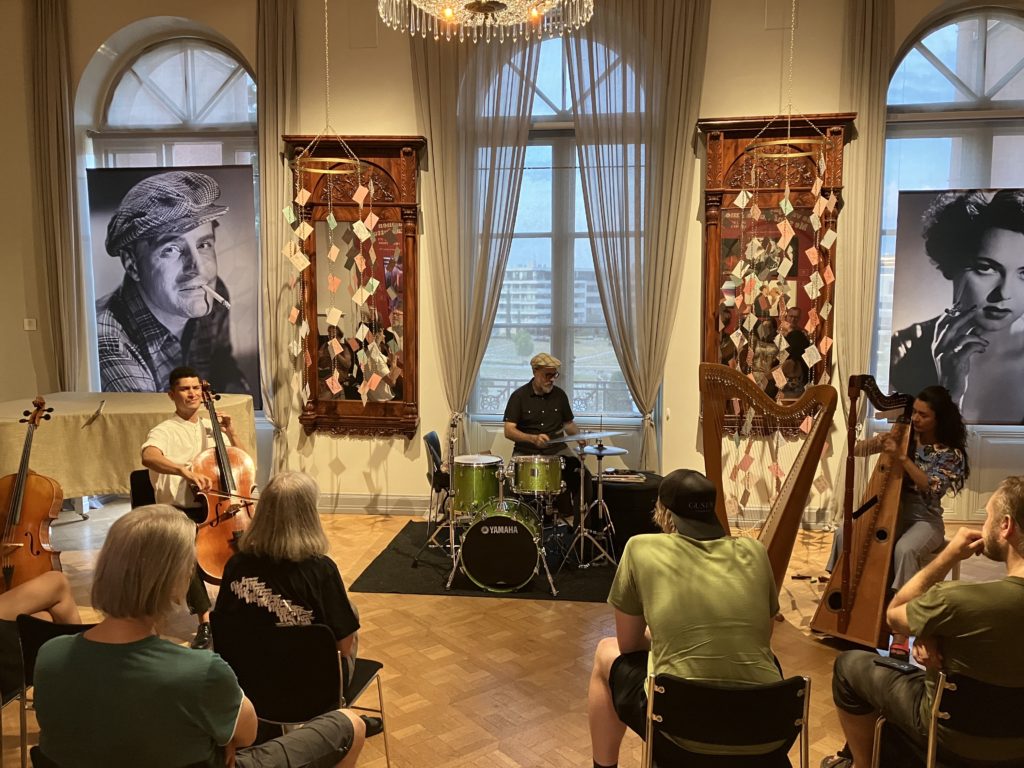
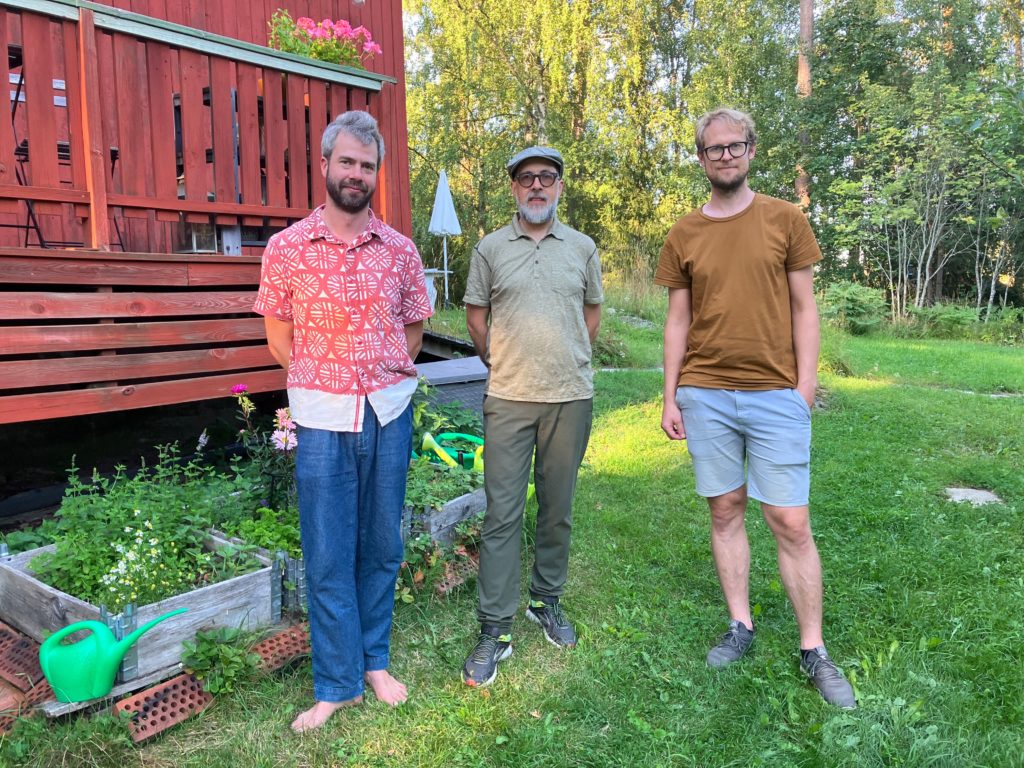
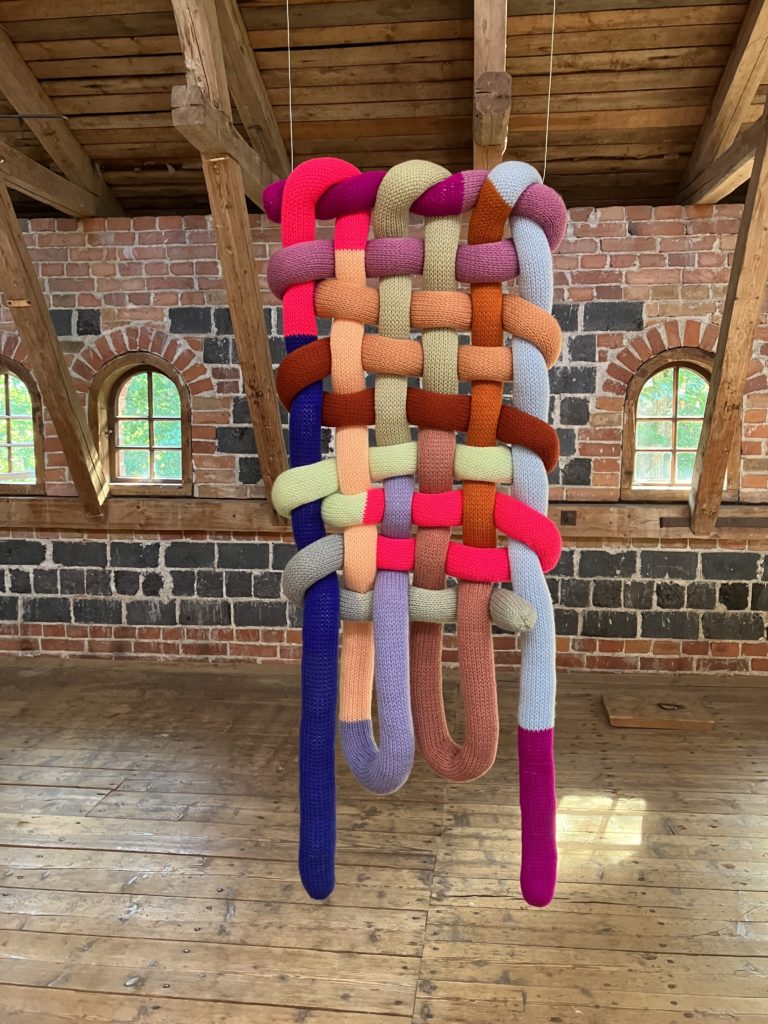
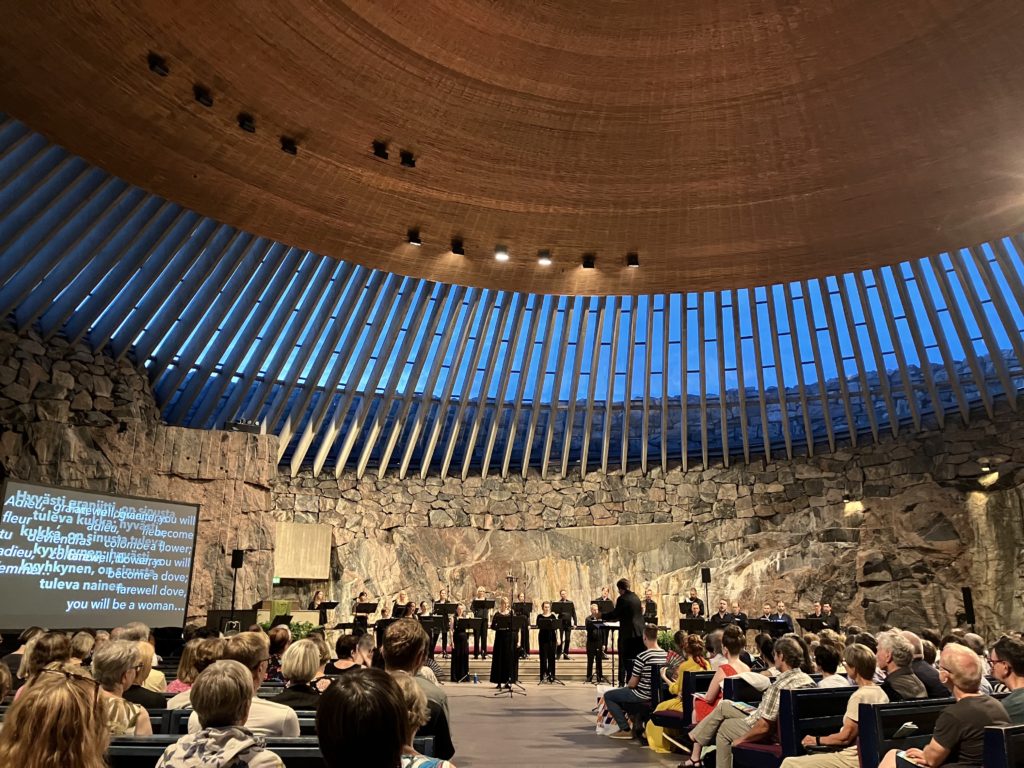
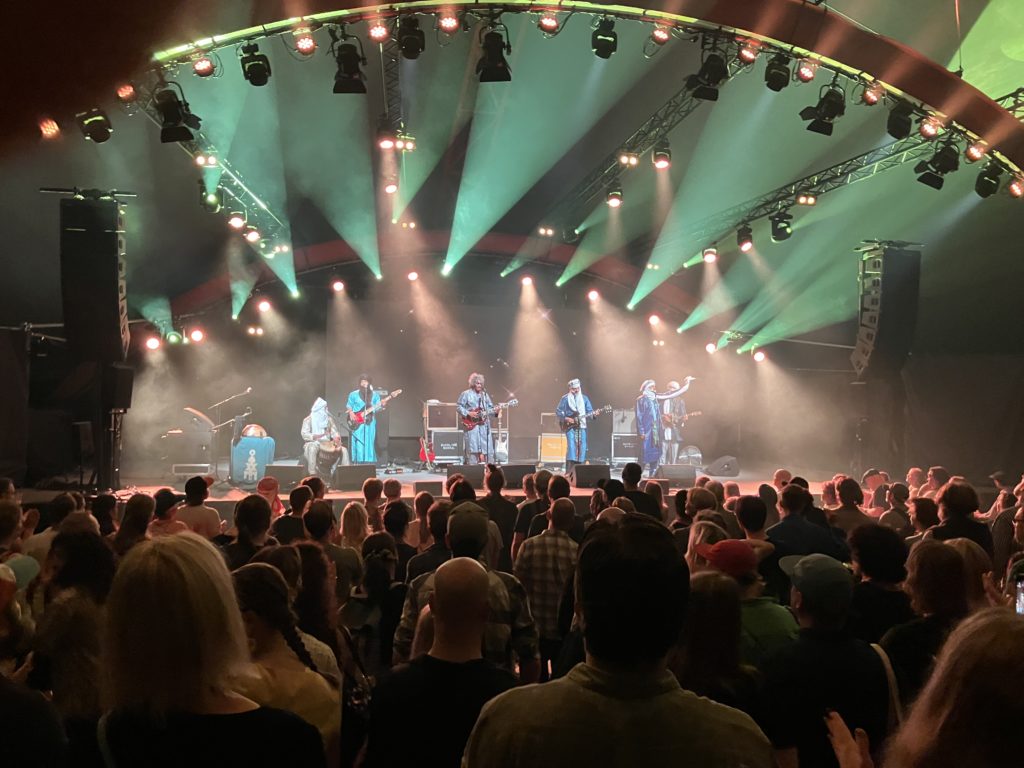

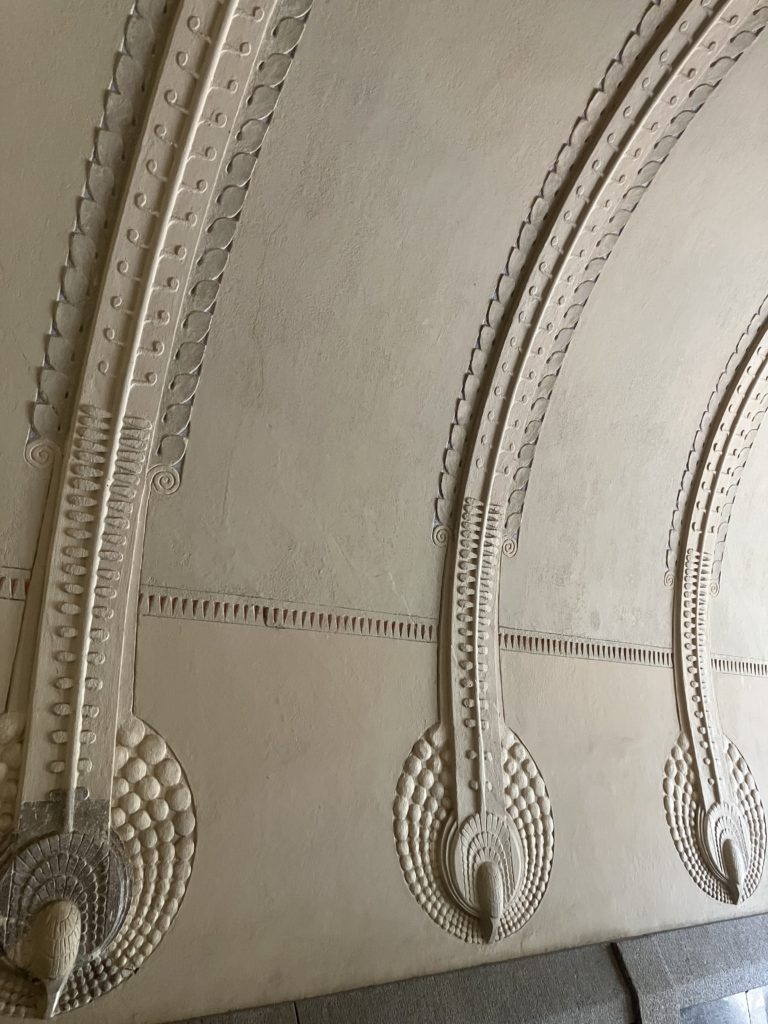

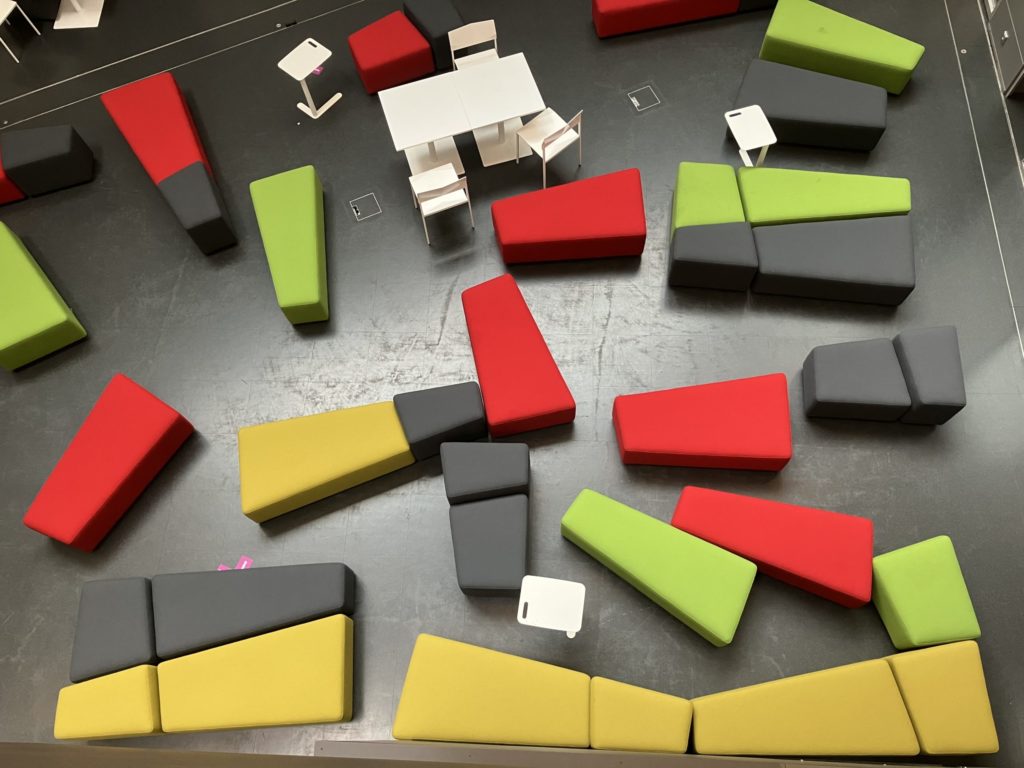
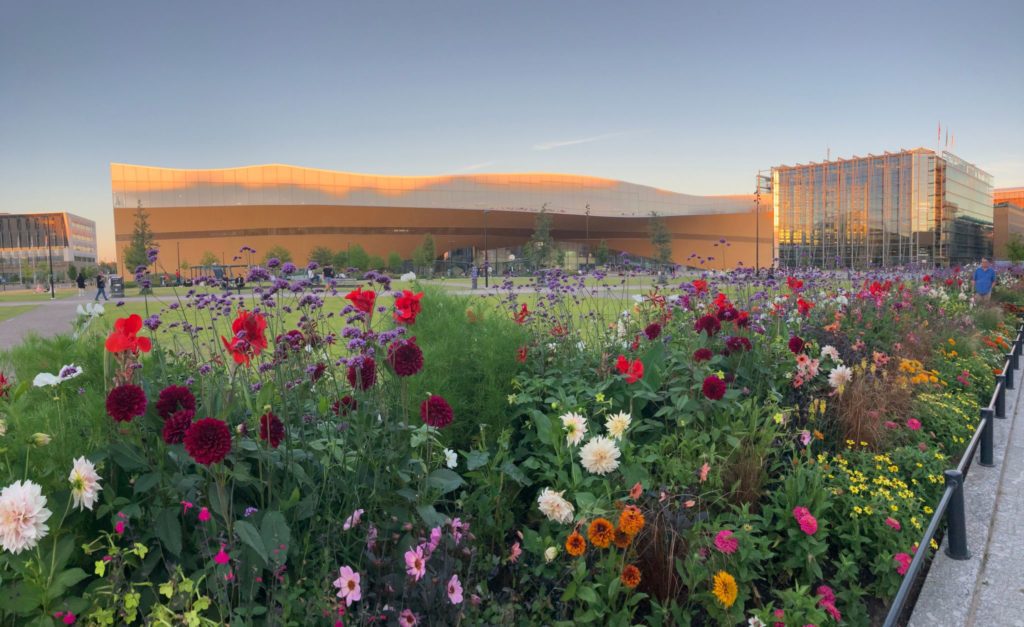

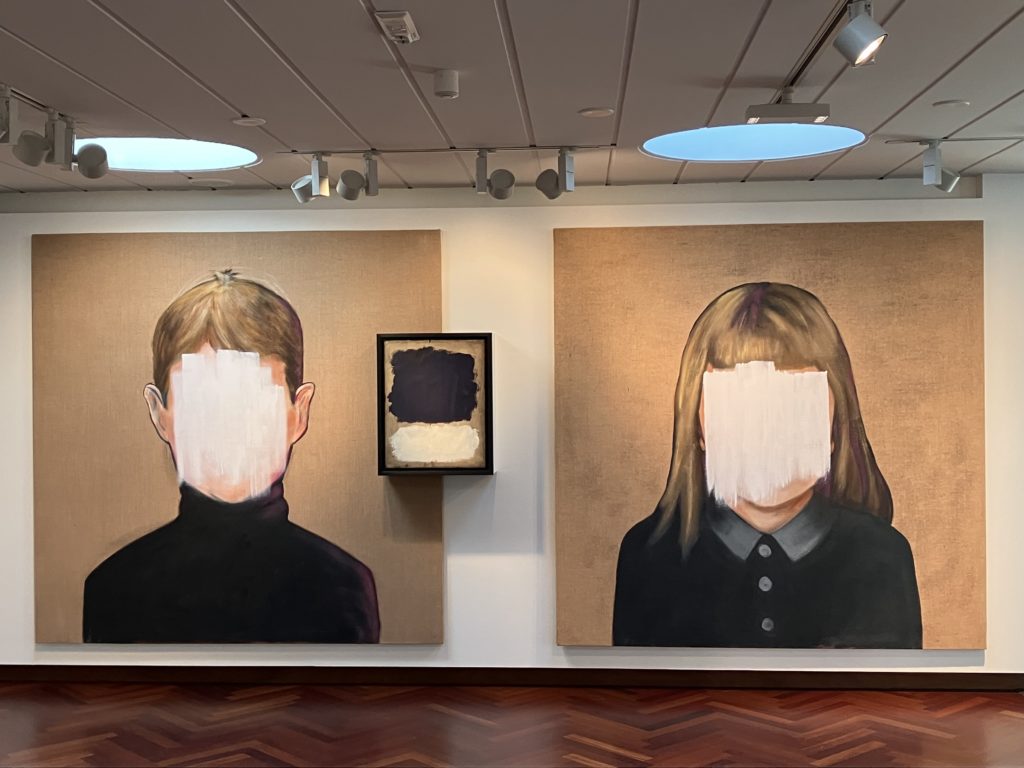
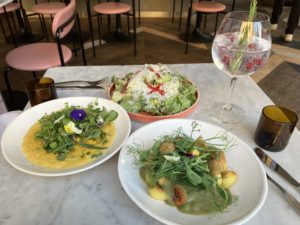
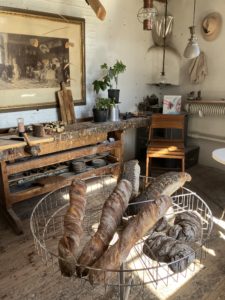
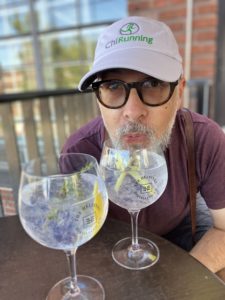


 After a little visit to the neighbor’s house, previously owned by one Jean Sibelius, we made our way to Helsinki to play at the musician friendly club,
After a little visit to the neighbor’s house, previously owned by one Jean Sibelius, we made our way to Helsinki to play at the musician friendly club,  It was a wonderful 3-set night led by me, my dear old comrade Ethan Iverson and new friend, Mike Moreno (who I quickly learned is a wine expert!…note to self: befriend as many wine experts as possible; not only do they know where the good wine is but the good food too!)
It was a wonderful 3-set night led by me, my dear old comrade Ethan Iverson and new friend, Mike Moreno (who I quickly learned is a wine expert!…note to self: befriend as many wine experts as possible; not only do they know where the good wine is but the good food too!) to lead featuring Verneri Pohjola on trumpet, Kari Ikonen on piano/keys, Ape Anttila on bass and maestro Mikko Hassinen on drums.Please note my friend and bandmate from
to lead featuring Verneri Pohjola on trumpet, Kari Ikonen on piano/keys, Ape Anttila on bass and maestro Mikko Hassinen on drums.Please note my friend and bandmate from 



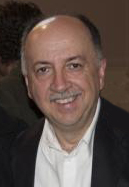 My earliest mentor, my older brother Pat, brought home crates of records with strict instructions to make a cassette mixtape by taking one track from each record. He took me to hear great music very early on (including Steve Gadd); took me backstage to meet the musicians; encouraged me to take lessons with the greats; told me to remain open, play everything, compose. He was responsible for getting me to study piano for a year before letting me start drums – I get it now and often say to my students, “You’ll thank me later!” He brought me to my first teacher (who was also his teacher), who was then my next mentor, Russell Black. Mr. Black was so giving as a teacher. He charged $5! for lessons that would last longer and longer so that after a while my mother would just say, “call me when you’re done!” He had piles of music which were strategically placed for his “since you didn’t practice, you will sight-read for an hour” sessions! In my last year in high school, when in retrospect I think he thought he had taught me all that he could about drums, we would just go to the nearby McDonald’s and talk about my love life! Thinking back, he seems like a character in a movie: the waxed moustache, manicured nails, money clip, Hawaiian shirts, his Lincoln continental, the fast comedic timing…
My earliest mentor, my older brother Pat, brought home crates of records with strict instructions to make a cassette mixtape by taking one track from each record. He took me to hear great music very early on (including Steve Gadd); took me backstage to meet the musicians; encouraged me to take lessons with the greats; told me to remain open, play everything, compose. He was responsible for getting me to study piano for a year before letting me start drums – I get it now and often say to my students, “You’ll thank me later!” He brought me to my first teacher (who was also his teacher), who was then my next mentor, Russell Black. Mr. Black was so giving as a teacher. He charged $5! for lessons that would last longer and longer so that after a while my mother would just say, “call me when you’re done!” He had piles of music which were strategically placed for his “since you didn’t practice, you will sight-read for an hour” sessions! In my last year in high school, when in retrospect I think he thought he had taught me all that he could about drums, we would just go to the nearby McDonald’s and talk about my love life! Thinking back, he seems like a character in a movie: the waxed moustache, manicured nails, money clip, Hawaiian shirts, his Lincoln continental, the fast comedic timing…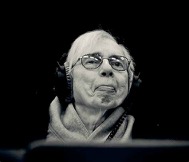 My next meaningful mentor was Bob Brookmeyer, valve trombonist and composer. I met Bob briefly a number of times early in my life, and in my late 20’s became close with him after taking several composition lessons and joining his New Art Orchestra. I’m still working on the assignments he gave me from the four composition lessons I took with him! I have a vivid and cherished memory of the time he left me a voice mail, ending it by telling me he loved me. He was always honest but very encouraging. “Do not stop!” was a motto for his music and life. I watched him persist through illnesses, failures and setbacks and learned a great lesson by witnessing his courage as he kept going forward, no matter what!
My next meaningful mentor was Bob Brookmeyer, valve trombonist and composer. I met Bob briefly a number of times early in my life, and in my late 20’s became close with him after taking several composition lessons and joining his New Art Orchestra. I’m still working on the assignments he gave me from the four composition lessons I took with him! I have a vivid and cherished memory of the time he left me a voice mail, ending it by telling me he loved me. He was always honest but very encouraging. “Do not stop!” was a motto for his music and life. I watched him persist through illnesses, failures and setbacks and learned a great lesson by witnessing his courage as he kept going forward, no matter what!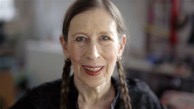 My fourth mentor is the great Meredith Monk, musician-composer-choreographer-filmmaker. I met Meredith when I was around 30 and joined her ensemble. She was immediately so warm and supportive, which gave me a confidence booster that I sorely needed after weathering the sometimes unforgiving harshness of New York City. I observed her listening to music and composing from an emotional standpoint, using her “heart knowledge” as some would say. I watched her work through the many obstacles one faces as a creative artist. If you don’t already know her, you can imagine how strong she is to persist as a woman creating innovative, ground-breaking indescribable work over the course of her incredible career spanning 50+ years!
My fourth mentor is the great Meredith Monk, musician-composer-choreographer-filmmaker. I met Meredith when I was around 30 and joined her ensemble. She was immediately so warm and supportive, which gave me a confidence booster that I sorely needed after weathering the sometimes unforgiving harshness of New York City. I observed her listening to music and composing from an emotional standpoint, using her “heart knowledge” as some would say. I watched her work through the many obstacles one faces as a creative artist. If you don’t already know her, you can imagine how strong she is to persist as a woman creating innovative, ground-breaking indescribable work over the course of her incredible career spanning 50+ years! One recent mentoree of mine in Montreal is
One recent mentoree of mine in Montreal is 
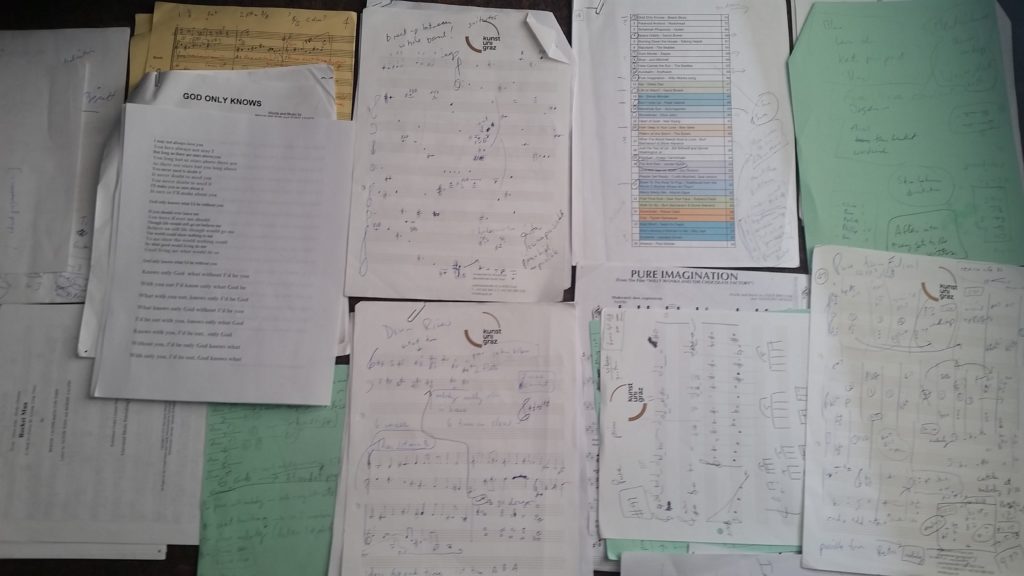
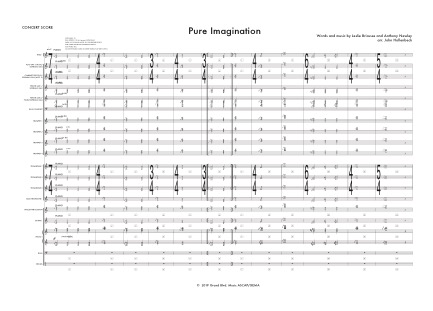
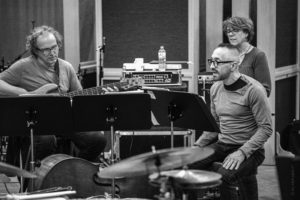
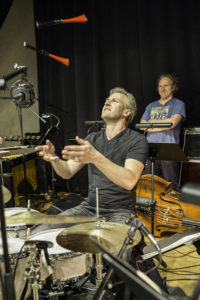
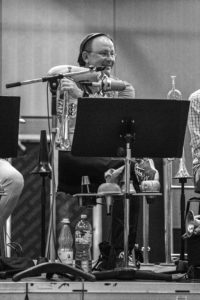
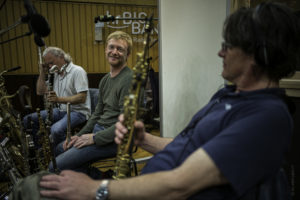
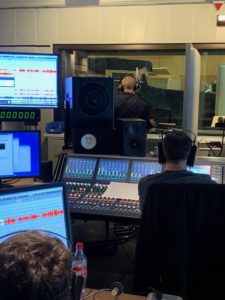 Then the recording engineer records the music and tweaks it in digital recording software where it looks again like scribbles, but this time digitized and colorful!
Then the recording engineer records the music and tweaks it in digital recording software where it looks again like scribbles, but this time digitized and colorful!
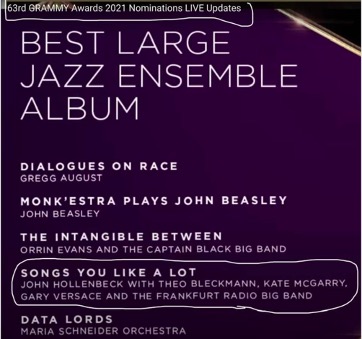 package. The publicity crew is activated to start getting the word out to you, writers, radio, etc. Lastly, people, some I know and many I don’t, listen to this recording. Ideally, the effect of listening brings pleasure and adds to the listener’s life, gives them optimism and joy. Hopefully they then want to come back to this recording for the initial sensations plus new ones they did not get/hear the first time (and maybe some will give it their Grammy vote!
package. The publicity crew is activated to start getting the word out to you, writers, radio, etc. Lastly, people, some I know and many I don’t, listen to this recording. Ideally, the effect of listening brings pleasure and adds to the listener’s life, gives them optimism and joy. Hopefully they then want to come back to this recording for the initial sensations plus new ones they did not get/hear the first time (and maybe some will give it their Grammy vote!
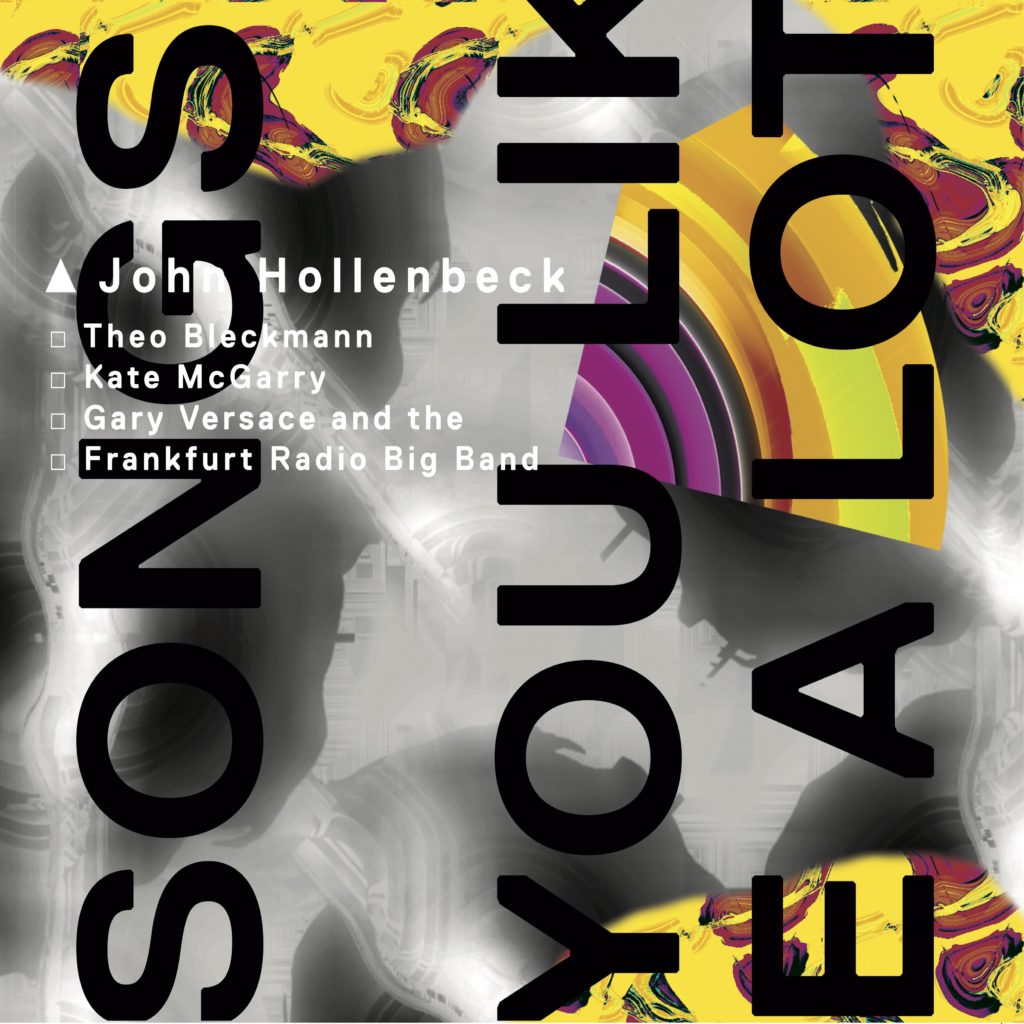

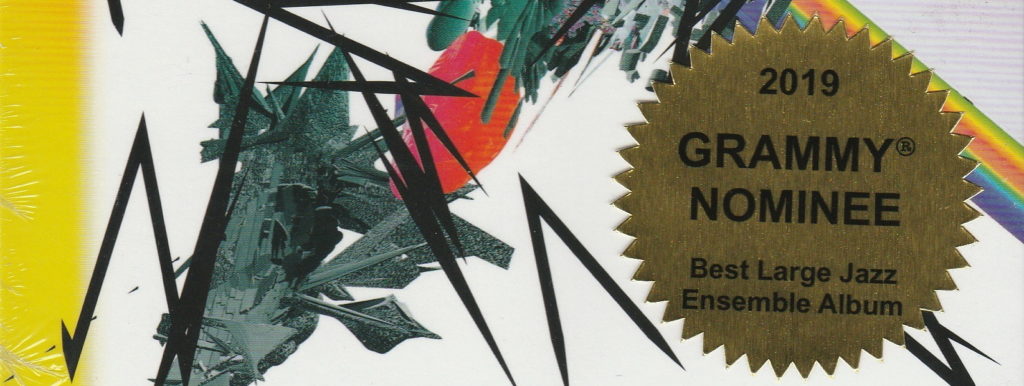

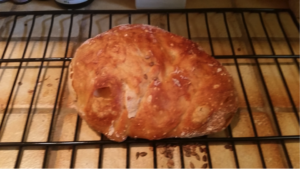
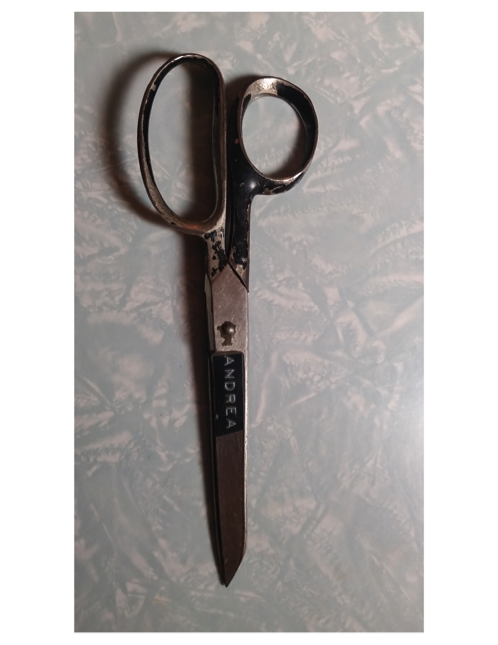
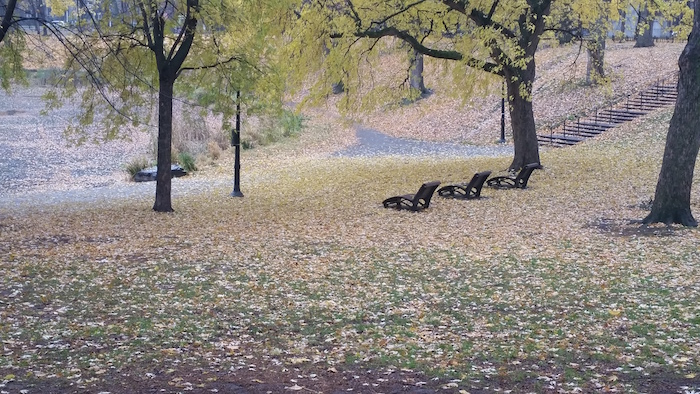 Greetings Friends. My last blog was a year ago, I don’t have a good excuse. Honestly being on the Internet has lost its allure for me. While I feel old saying this, I would much rather go for a walk, read a book, listen to a CD or LP, eat pizza, drink cider, go to a yoga class…the list is quite long before it says “go on the internet.” But I’m getting questions especially from people in the music business, like “Are you dead?” “Did you give up music?” “When is your next gig?” “Do you still live in Berlin?” which reminds me that a presence on the good ‘ole world wide web is helpful so that people know that you have a gig or need a gig.
Greetings Friends. My last blog was a year ago, I don’t have a good excuse. Honestly being on the Internet has lost its allure for me. While I feel old saying this, I would much rather go for a walk, read a book, listen to a CD or LP, eat pizza, drink cider, go to a yoga class…the list is quite long before it says “go on the internet.” But I’m getting questions especially from people in the music business, like “Are you dead?” “Did you give up music?” “When is your next gig?” “Do you still live in Berlin?” which reminds me that a presence on the good ‘ole world wide web is helpful so that people know that you have a gig or need a gig.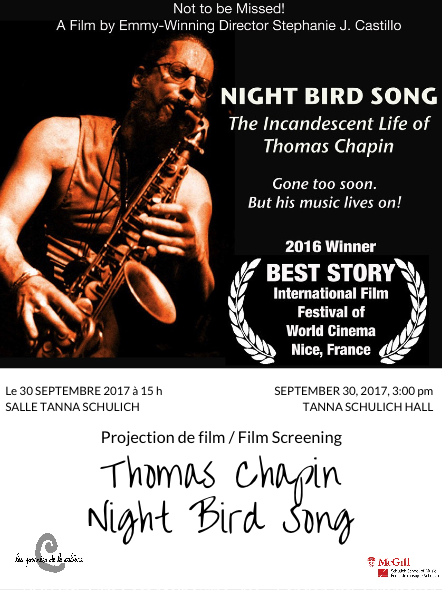
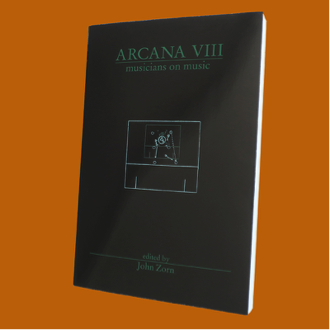
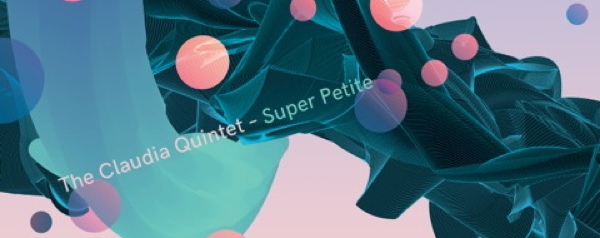
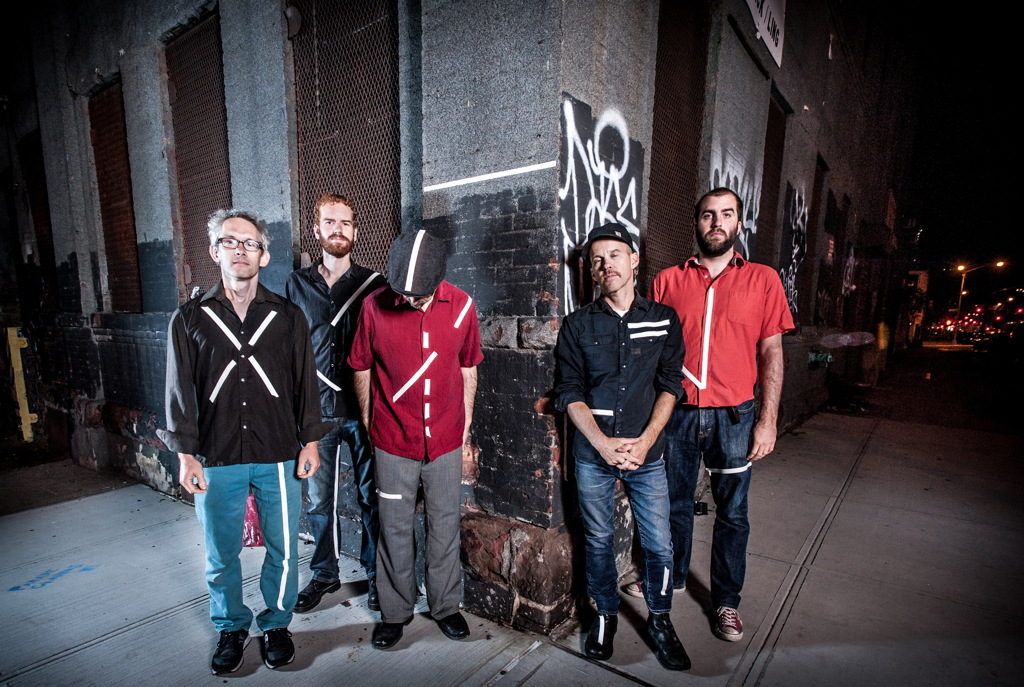
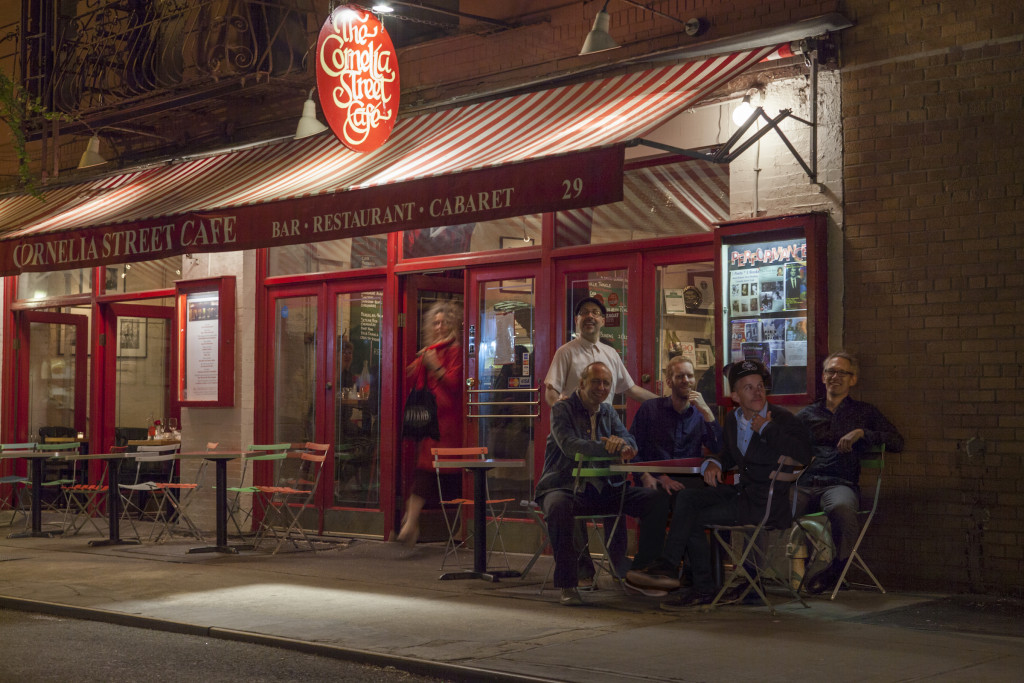 We, the
We, the 

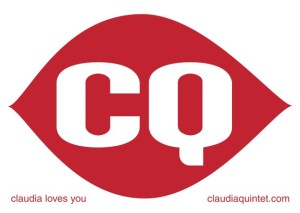


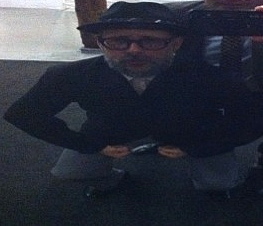

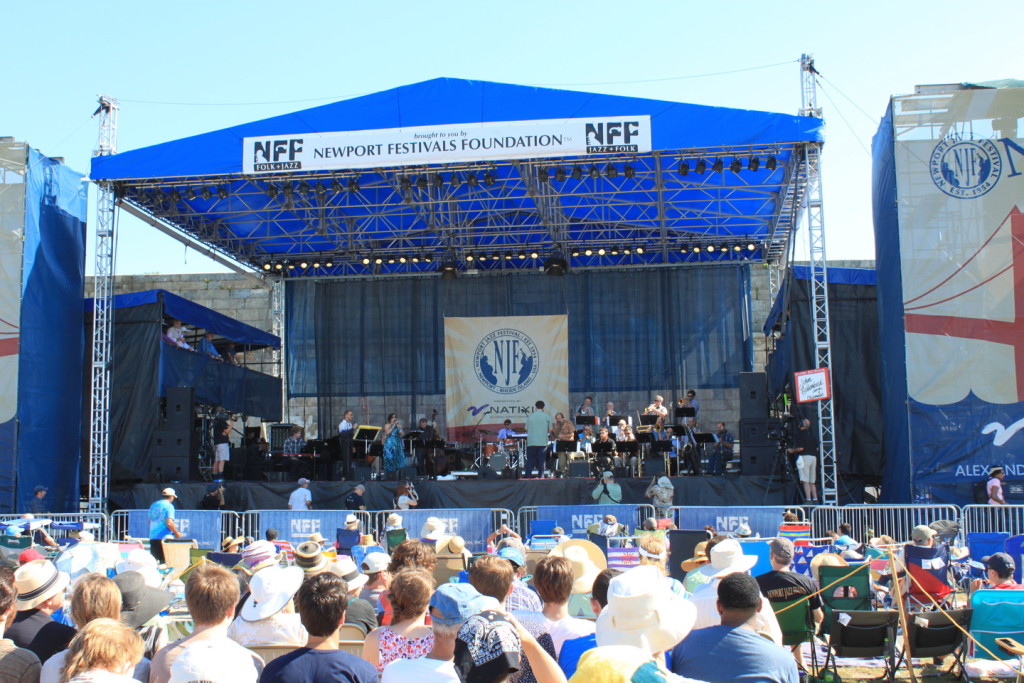
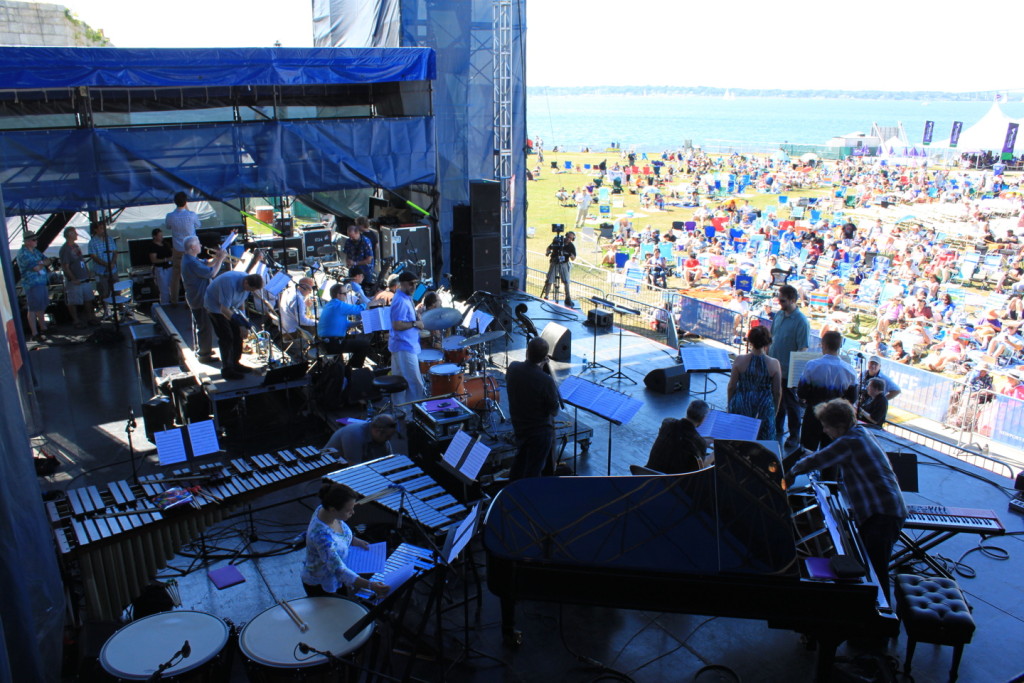
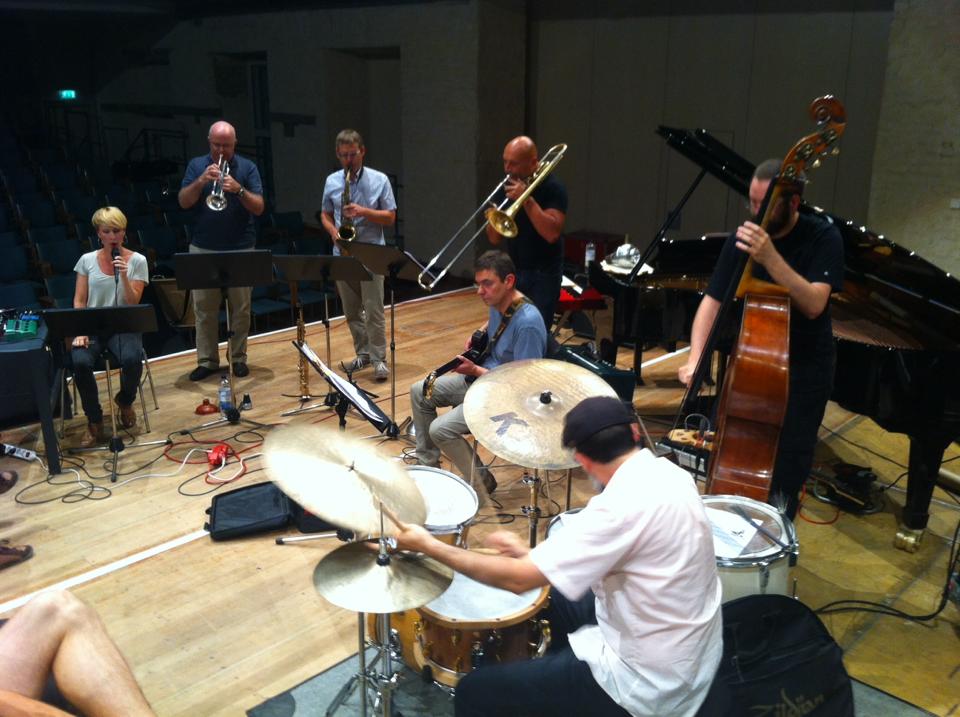
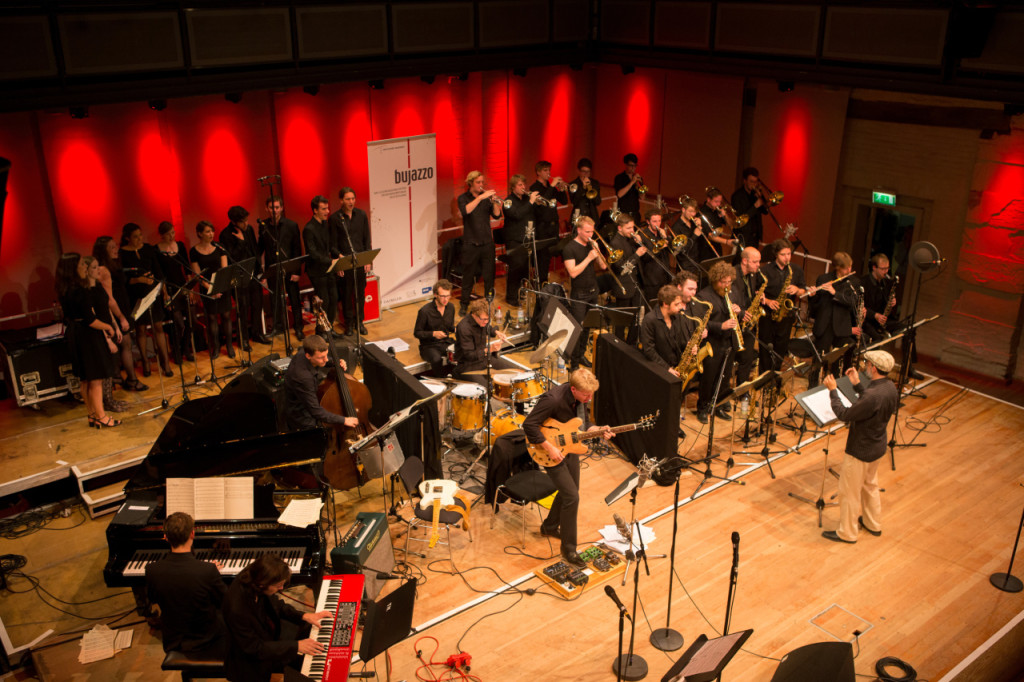
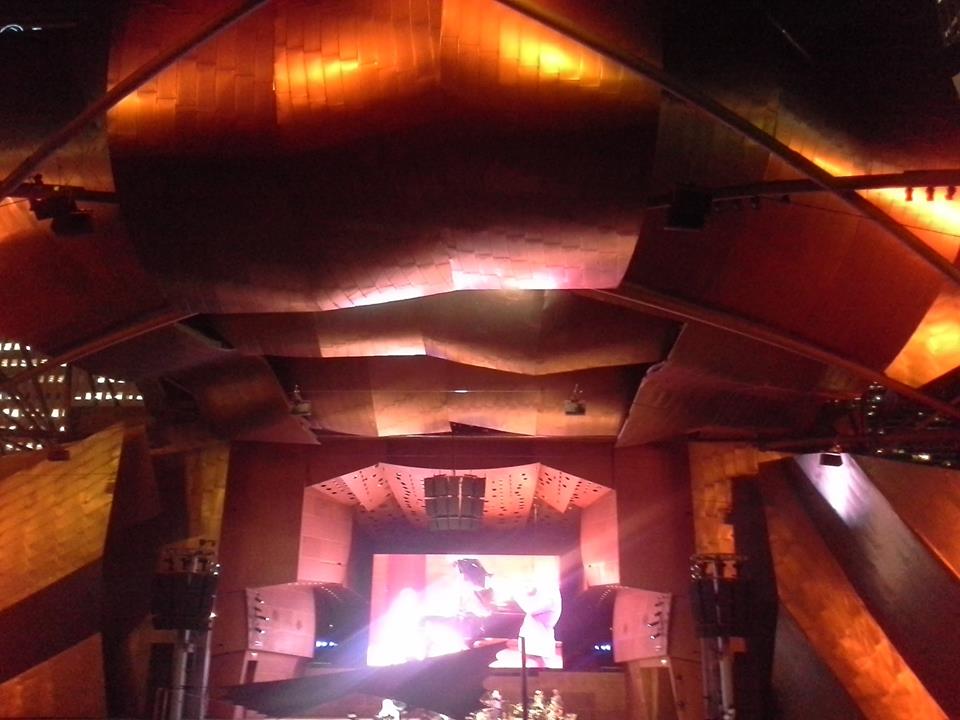
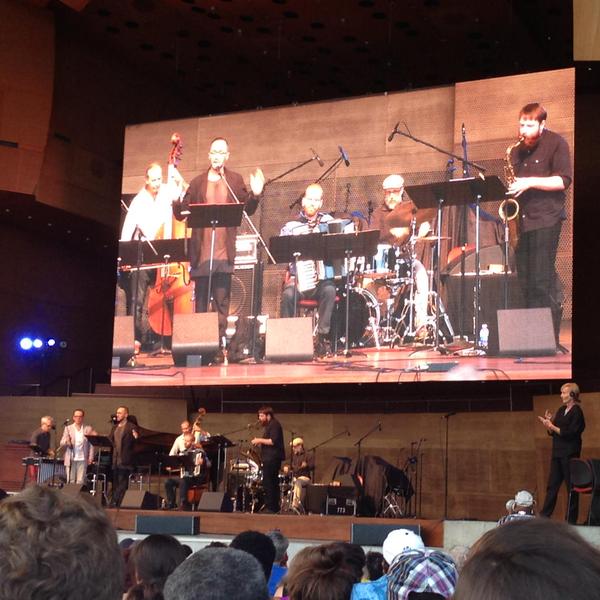
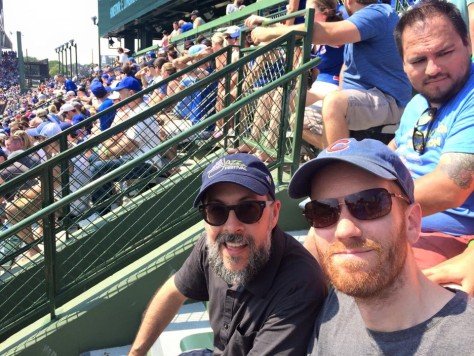
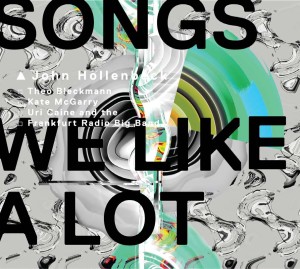
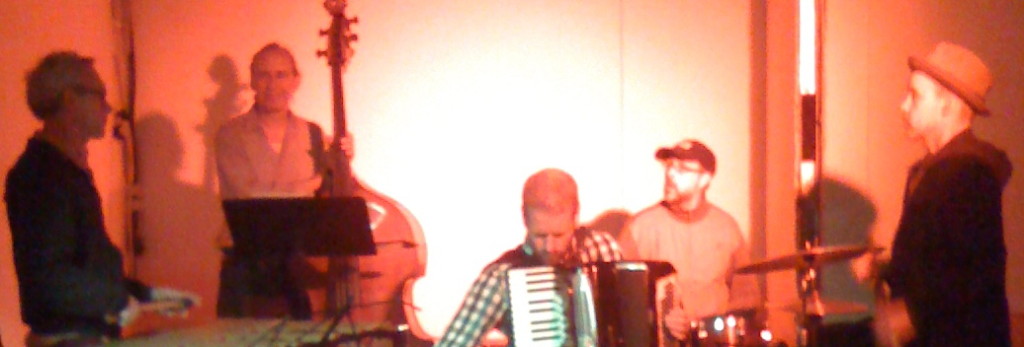
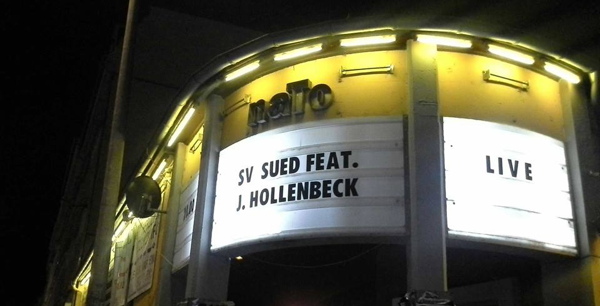
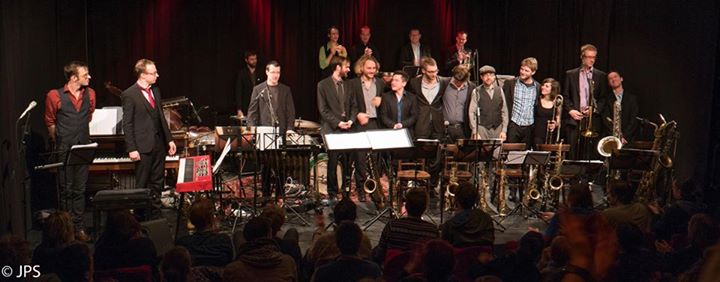
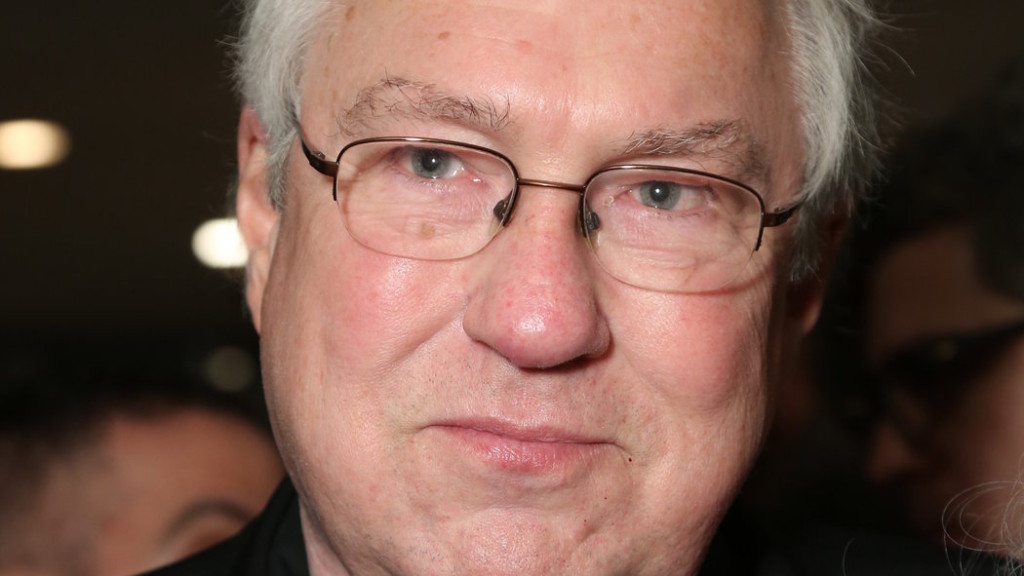
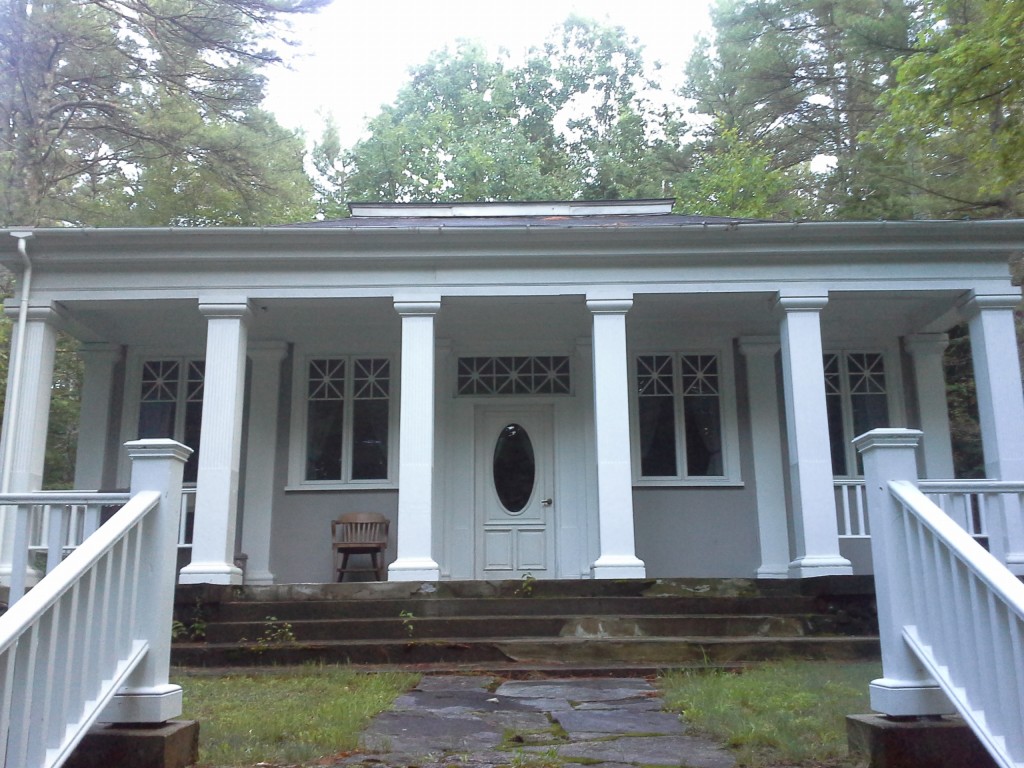



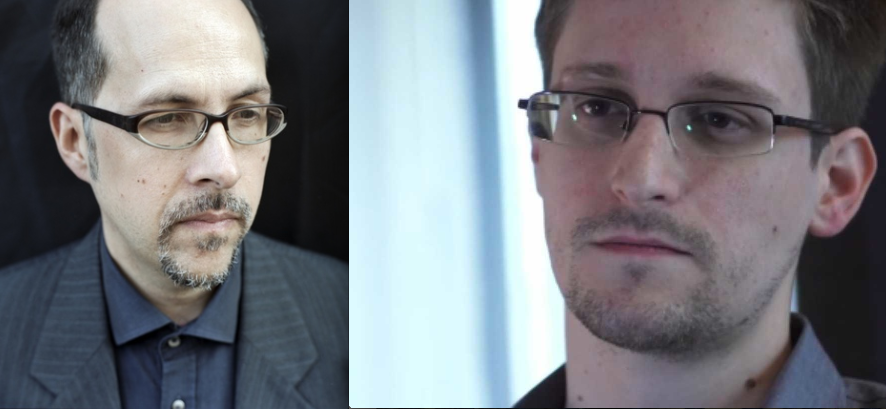
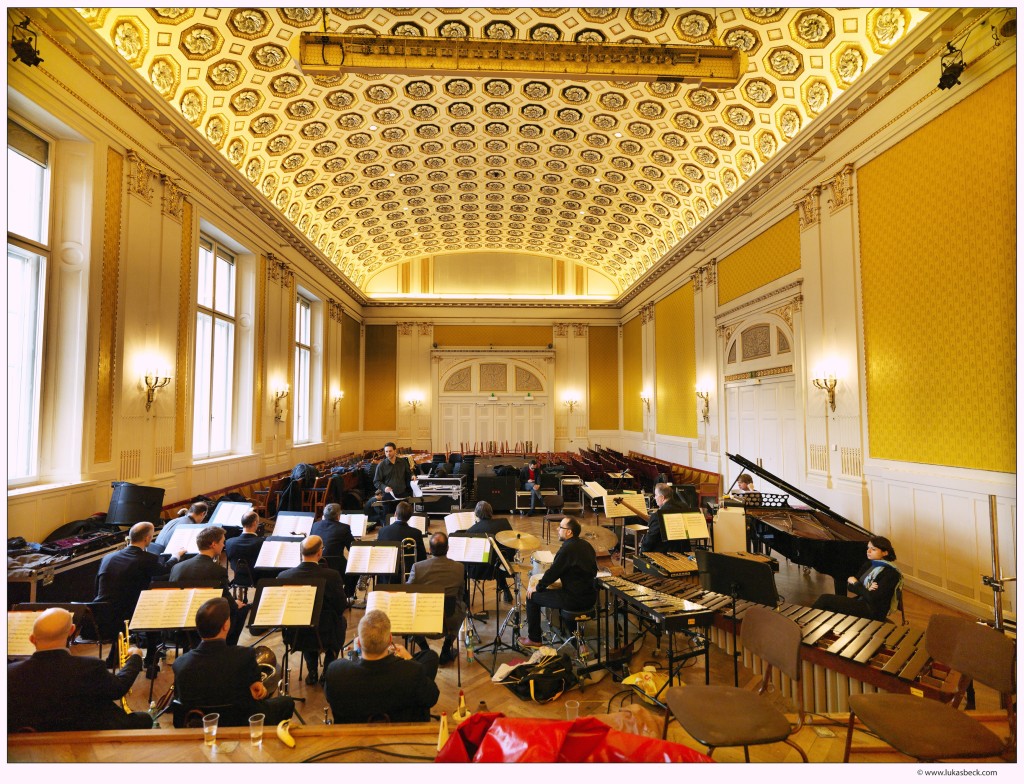
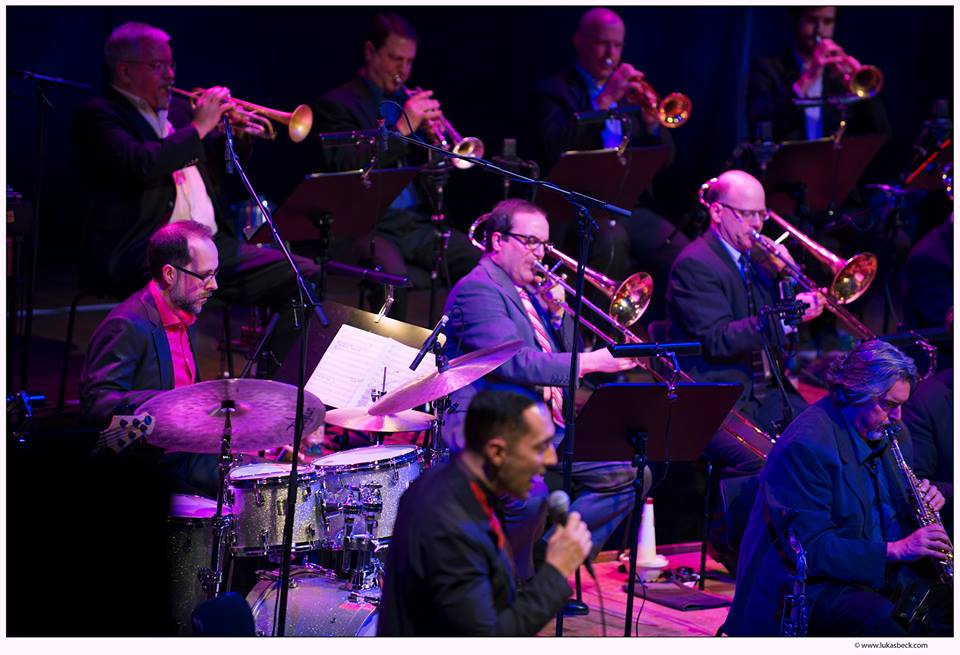
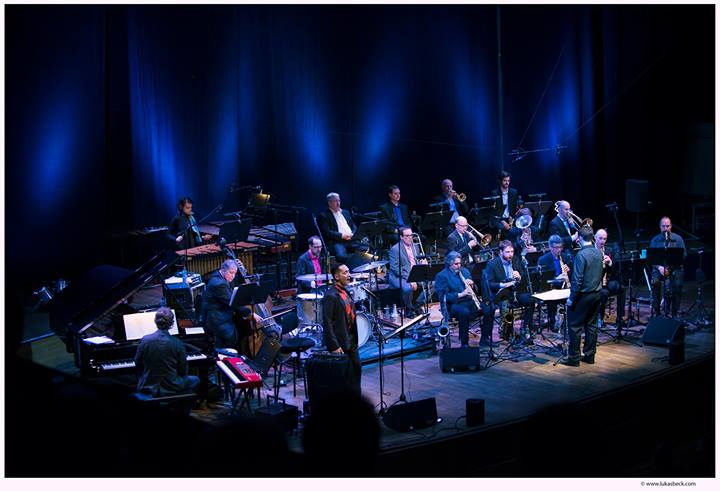
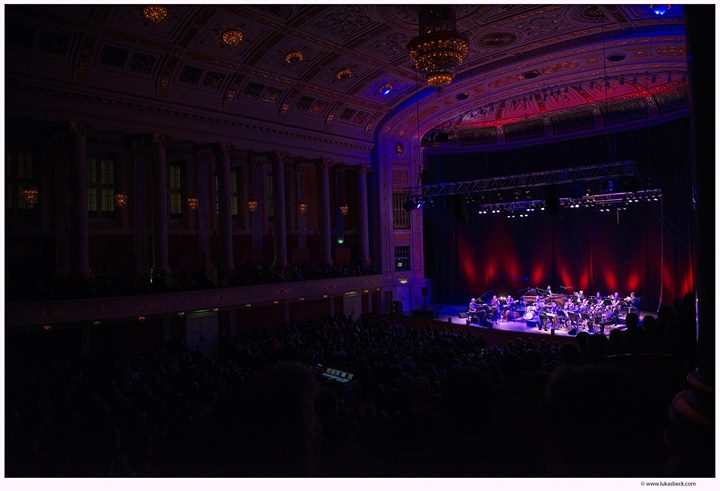
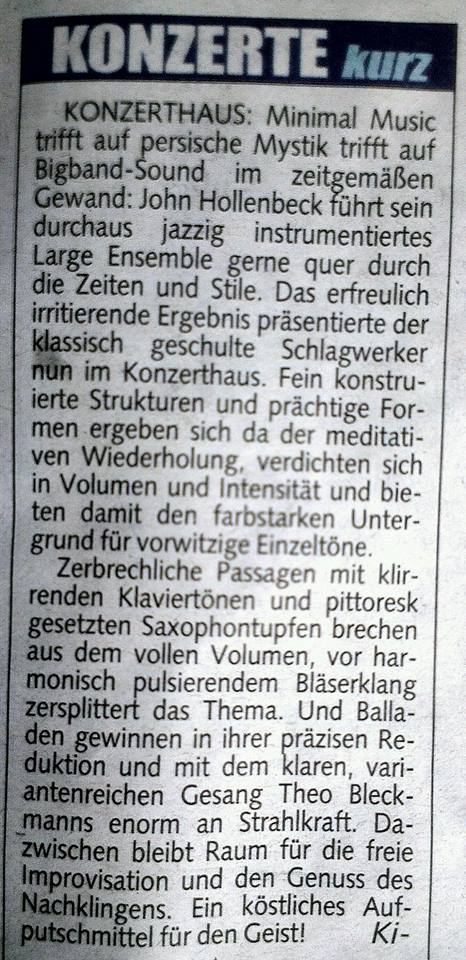
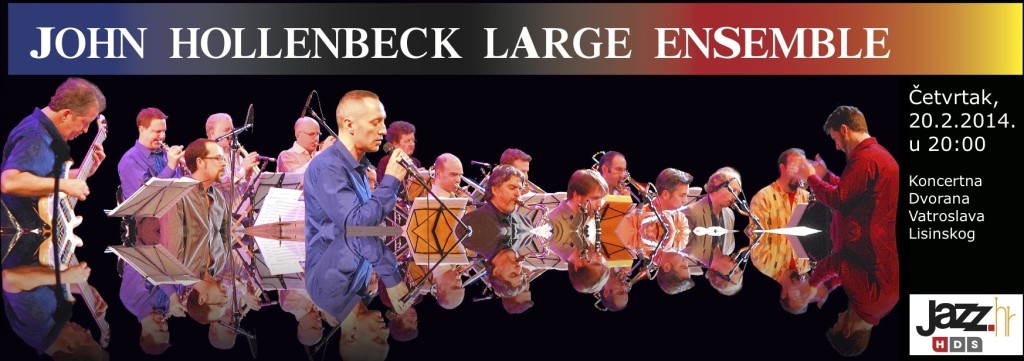
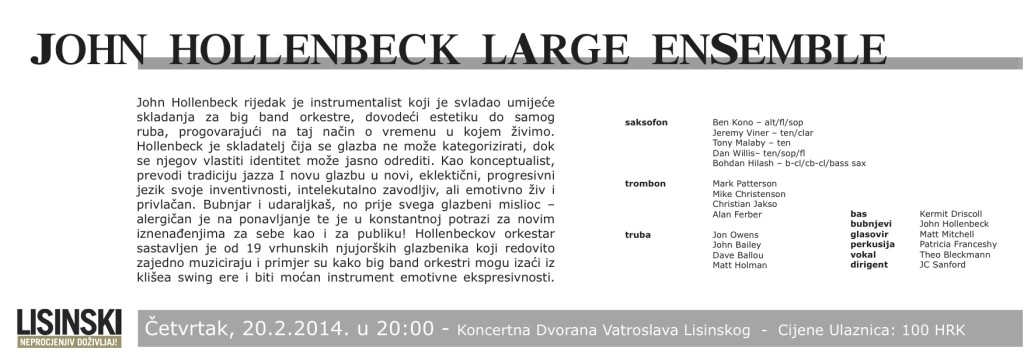
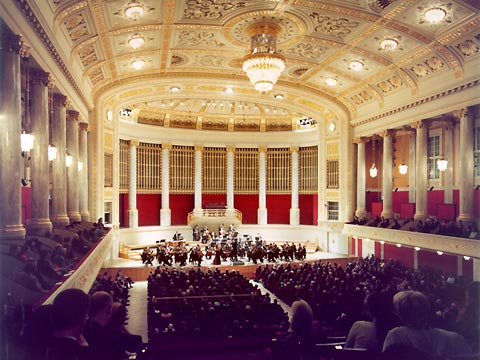
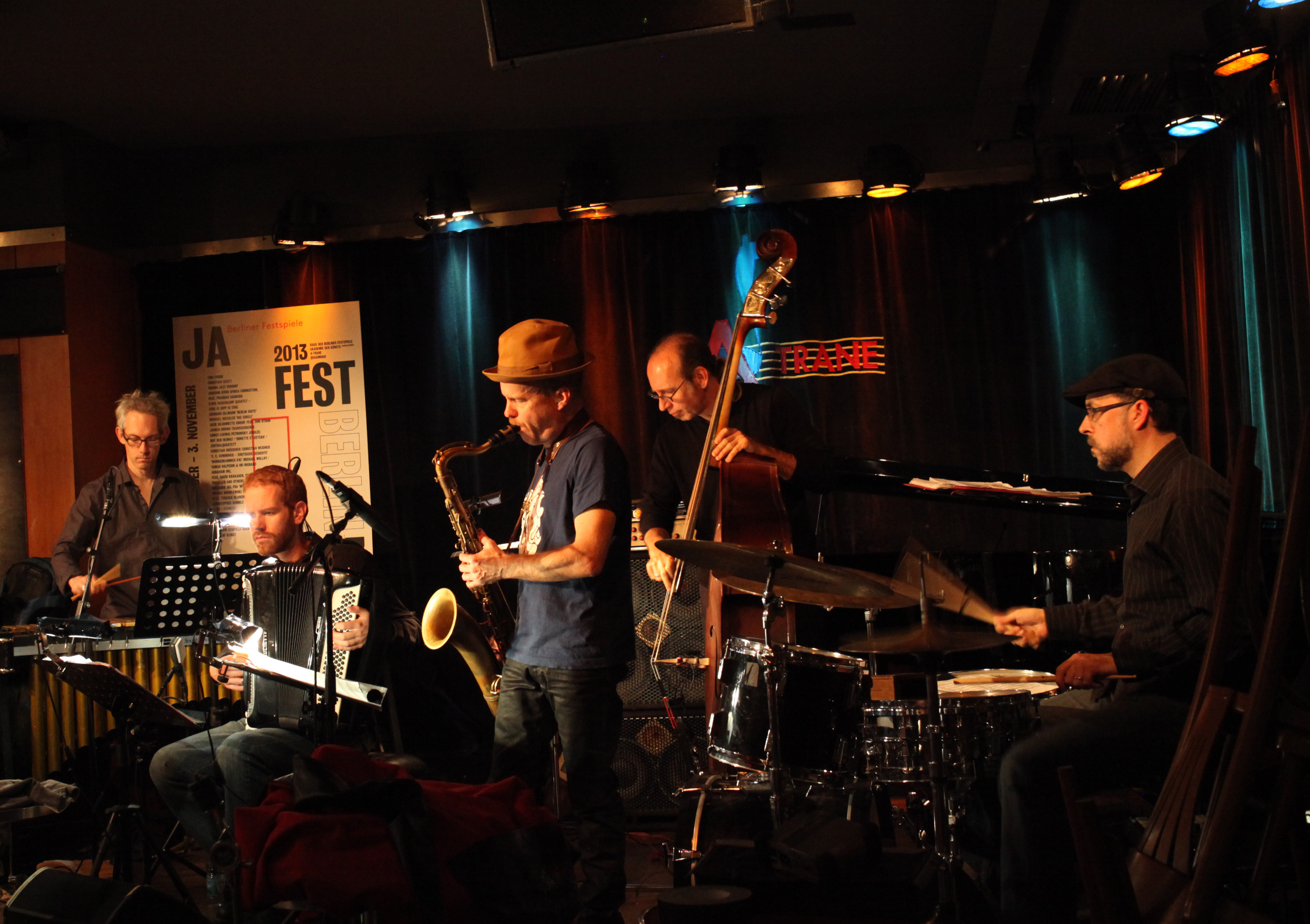
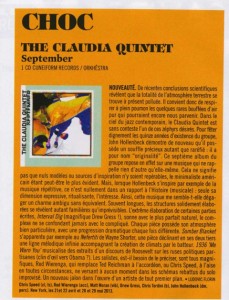
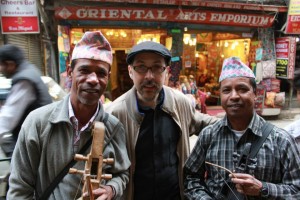
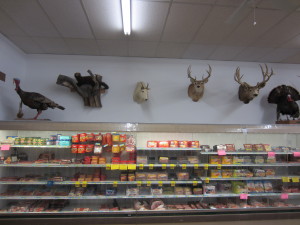
 I also played a lot of trio through the years with him and Ingmar Heller (the bassist with the NAO). He was a dear, sweet guy who will be missed. His playing was unbelievable-I can’t even explain it, but it was like he was channeling a sacred priest who played the piano.
I also played a lot of trio through the years with him and Ingmar Heller (the bassist with the NAO). He was a dear, sweet guy who will be missed. His playing was unbelievable-I can’t even explain it, but it was like he was channeling a sacred priest who played the piano.